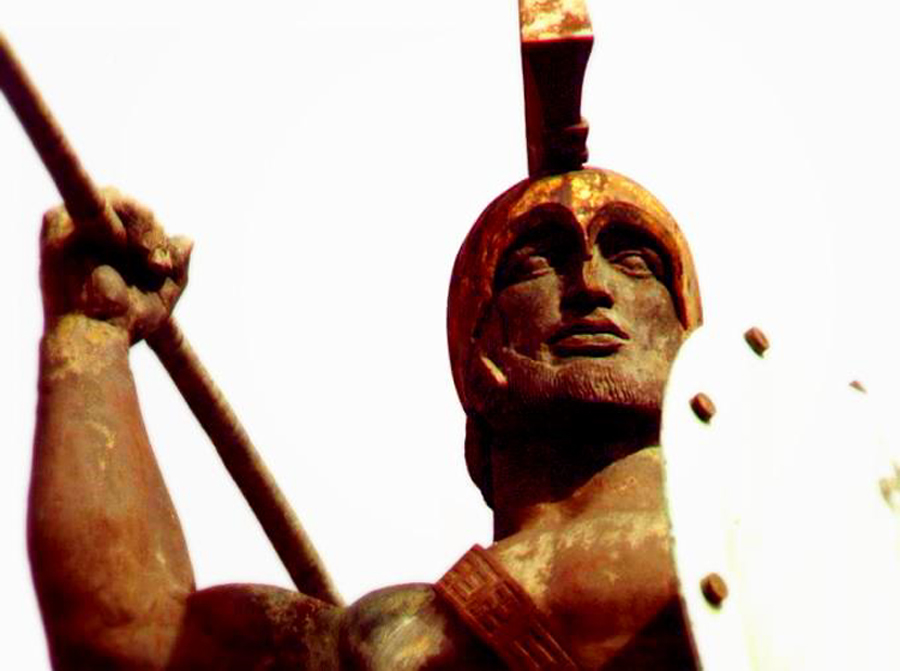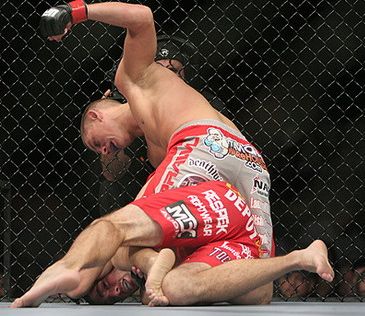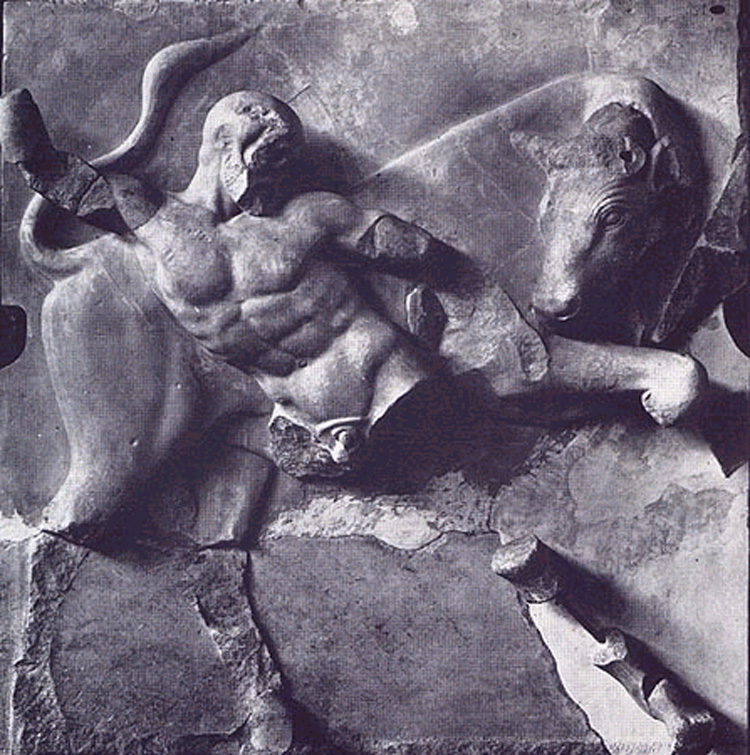













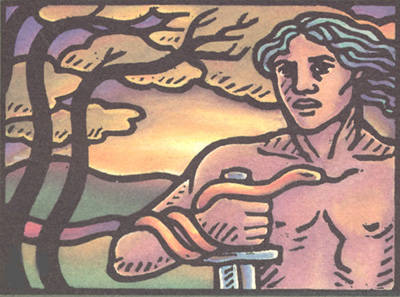


Sexual Freedom
12-30-11
Hi Guys.
In March of 2011, and under the tag Black Party Insanity, Salon.com ran an article titled The gay sex event that made me a prude.
The writer was a gay-identified guy named Thomas Rogers who
works at Salon and had gone to the Black Party -- a famous "gay" sex
party.
Here are some excerpts, starting with the first paragraph:
I remember the exact moment I realized it was time to leave the sex
party and go home. It was 7:30 in the morning, and I was standing in
front of a bunch of cots filled with piles of naked men. A man dressed
in a leather jacket emblazoned with the words "human urinal" was next
to me, a funnel strapped to his face. And as I stood there
contemplating the circumstances that had led me to this place, a man
wearing nothing but a harness and underwear staggered down the hallway
and accidentally pressed up against me. "Oh my God!" he exclaimed to
his friend, as his wet skin rubbed up against my arm. "Some guy must
have pissed ALL OVER my shoulder!"
...
I had come here to confirm several of my long-cherished beliefs
about sex and gayness: that sex in all of its forms was awesome, that
gay men's permissive attitudes toward it were much saner than the
straight community's, and that events like this one were a healthy
celebration of the most transgressive elements of gay life that had
preceded me. But as the night progressed, my attitude went from
excitement to discomfort to utter revulsion -- and I began to wonder,
did I even belong here?
I was 23 years old at the time. Like most gay guys, I spent my late
teens and early 20s making up for the chastity of my high school
years. As I moved from my hometown in Edmonton, Canada, to bigger
cities, I went to gay punk shows and arty queer dance parties, getting
myself drunk enough to talk to men I thought were cute and, on
occasion, going home with them. But my sexual coming-of-age was
probably not that different from that of most straight men and women,
filled with prolonged periods of unwanted celibacy and awkward
one-night stands.
I was a monogamist by nature, but I longed to be more
adventurous in sex. When I lived in Toronto after college, my
older friends visited bathhouses and cruised the park in my Portuguese
neighborhood. "You'd be surprised by how hot those men behind the
bushes are," one of them told me. "Too bad they're all married with
kids." When I got a job working in a gay video store, I could see guys
hanging out on the roof deck of the gay bathhouse across the street. I
would watch them idly smoke their cigarettes during the afternoon and
wonder whether I was missing out on a key part of the gay
experience by not being over there in my towel, instead of heading
home to my boyfriend.
...
[He goes to the Black Party]
This was what I'd come for: a bacchanal of shamelessness and free
sexual expression. It embodied the radical gay politics I thought
were lacking in my generation of gay men, so concerned with
marriage and adoption and fitting in. But now that I was seeing it
firsthand, I found myself strangely disconcerted. It wasn't just the
fact that so many of the men seemed to be on meth or GHB, or the fact
that many of them were probably having unsafe sex. It was the
sheer frenzy of it. The sex I was seeing didn't seem erotic or
pleasurable so much as compulsive -- not an intimate act at all, but a
performance.
Then, around 5 a.m, I witnessed a scene that remains seared into my
memory. A group of a hundred or so men had gathered around the pool
table near the main stage and were watching four men, one wearing a
cat mask and another dressed in a boy scout uniform. The boy scout
first poured the contents of a beer bottle into the man in the cat
mask, who was lying down on the table. The cat masked man shot the
contents (and not with his mouth) back out onto onlookers. The boy
scout then got rid of the bottle in favor of other implements; first a
pool cue -- handle first -- then four pool balls. As I walked away, I
saw him prepare to insert one more object: a magic eight ball.
...
[Concluding paragraph]:
That doesn't mean that men won't or shouldn't keep having sex in
dark rooms or on pool tables in front of large crowds, but it means
that, as the march toward the mainstream continues, it'll probably
become increasingly uncommon. And it doesn't mean I'm not grateful --
over the last few decades, those hordes of kinky gay men paved the way
for my sexual freedom. I like that the Black Party exists. I like that
it makes people uncomfortable. And I never want to go there again.
[emphases mine]
The first thing that struck me when I read Mr Rogers' article was this sentence:
"And it doesn't mean I'm not grateful -- over the last few decades,
those hordes of kinky gay men paved the way for my sexual freedom."
It struck me first off because it isn't true on at least two levels:
Yet the "right" to have public sex -- if "sex" is what you choose to call it -- is not the same as, nor did it bring about --
the right to
write about witnessing such acts in Salon -- or the NY Times -- and not get
fired.
Those are two very different things.
Guys having public or semi-public sex at the Black Party is NOT the
reason that Mr Rogers has civil rights protections that I didn't when
I was his age.
Indeed -- and I know this well because I was there for the fight --
guys having public sex was an impediment to obtaining those civil
rights.
Because -- Mr Rogers is expected to do anal.
I wasn't.
Big difference.
Mr Rogers isn't sexually free.
To the contrary -- you'll notice he says that the behavior at the
Black Party seemed "compulsive."
And that's correct -- in the cultural sense:
It's *culturally* compelled and coerced behavior.
And you can see that compulsion at work with Mr Rogers himself when he
says "I was a monogamist by nature, but I longed to be more
adventurous in sex."
That longing, as he makes clear in his article, is due to cultural pressure manifested by his
peers:
So -- his so-called friends encouraged him to engage in the worst and
most dangerous sorts of promiscuity -- anonymous sex in bathhouses and
public parks -- with multiple partners.
Thus and de facto denigrating his natural and manly yearning for Fidelity -- what he calls "monogamy."
Again, those sorts of peer messages from "friends" undermining the male's natural yearning for Fidelity and mandating sexual promiscuity, no matter how dangerous, constitute a cultural compulsion.
They're one of the ways the culture -- in this case analism -- COMPELS compliant behavior.
Once again, that behavior isn't innate.
It's CUTURALLY compelled.
Indeed, even the title of the article -- "The gay sex event that made me a prude" -- is a cultural message.
The message being, in this case, that if someone spewing his rectal secretions into a crowd makes you uncomfortable, you're a "prude" -- "prude" being, in our hedonist culture, a truly derogatory term -- virtually identical, in this case, to "erotophobe."
"Erotophobia" is supposed to indicate an irrational fear of the erotic.
Which begs the question -- is getting a urine enema or putting pool balls up your ass "erotic?"
Not to me.
To me, it has nothing to do with eroticism.
And to me, Mr Rogers isn't a prude.
He's simply, as one of our guys said years ago, and in this instance, being prudent.
An observation which, believe me, will not wash with Mr Rogers' analist buddies.
And you know, it's interesting, but the word "prude" itself appears nowhere in the article other than the title; making me wonder whether the title was Mr Rogers' choice -- or that of his editor.
In which latter case, the title is even more of a cultural message.
But -- beyond those two points, what struck me most in reading
Rogers was the huge disconnect between his use of the word "freedom" ;
and that of ancient philosophers like Sokrates (469 - 399 BC), Plato (427 - 448 BC), and Plutarch (ca 50 - 120 AD).
Because to Men like Sokrates, Plato, and Plutarch,
true freedom is known only to those who have *rational* control of their
passions.
So:
In the ancient world, a given of moral philosophy, starting at least
with Sokrates, and really earlier, was that a man should control his
passions;
not the passions control the man.
Again, that was a given, a commonplace.
As you know if you've read Prudence or the Pill -- which is MUST reading -- don't skip it -- READ IT --
Sophrosyne -- self-control -- was *the* pivotal Greek civic and communal virtue.
Central to Greek Life.
A Man controls his passions.
They don't control him.
He controls them.
Thus the Palaistra -- the Fight School -- which is also the School of the Mind.
What's taught there is CONTROLLED Aggression;
And the ability to Think -- to REASON.
Body and Mind.
And again, and for both, Self-Control is core.
The Divine Virtues, according to Plato -- and others -- were:
Justice, Courage, Self-Control, Wisdom, Piety
Self-control is always the pivot.
And a Man -- and the upper-case M is appropriate in this instance --
controls his passions using Reason -- which is a divine attribute.
Thus, you find a Platonist philosopher like Plutarch writing an essay
on "How to Measure Moral Progress."
That essay was well known both in the ancient world and then
from the Renaissance forward.
It was a piece that boys routinely studied in school.
And its values were mainstream values.
It's only been relatively recently that promiscuity, for example, has
been considered "masculine" or "manly."
In the ancient world, the opposite was the case.
Promiscuity was associated with effeminacy and weakness in general.
It was not seen as a male or manly trait.
So, and again, to Men like Sokrates, Plato, and Plutarch,
true freedom is known only to those who have *rational* control of their
passions.
This was a huge issue in the Athens and Greece of Sokrates' and Plato's
day, because to the average Greek, and under the sway of the sophists and
rhetoricians -- Gorgias was a famous teacher of rhetoric, and in the
debate in Plato's Gorgias, which we've often discussed, and will again, Callicles is his pupil --
So -- to the Greeks of Sokrates' day, and enamoured as so many were --
fatally as it turned out -- with the idea of personal freedom -- the freest man
was the tyrant -- the Greek dictator.
Because he could fulfill any sensual desire.
A tyrant could seize property -- and it wasn't theft.
A tyrant could force a woman -- or man -- sexually -- and it wasn't rape.
And a tyrant could kill someone -- and it wasn't murder.
A tyrant could do anything he wanted.
So -- wasn't he, then, the most free of any human?
NO -- said first Sokrates and then Plato.
Because clearly the tyrant was being ruled by his passions.
Now -- Plato as it happens had up-close and personal contact with two
of the most powerful, rich, and debauched tyrants of his day --
Dionysius the Elder and Dionysius the Younger of Syracuse.
Which was a very wealthy Greek city-state in Sicily.
Plutarch describes what went down between Plato and Dionysius pere et
fils -- in his Life of Dion -- Dion was a Syracusan aristocrat who was
related by marriage to the tyrants and who led a revolt against the
younger of them:
Dion was a brother of Aristomache [,wife of the Syracusan tyrant
Dionysius the Elder], and at first was honoured because of his sister;
afterwards, however, he gave proof of his wisdom, and was presently
beloved by the tyrant for his own sake. In addition to all his other
favours, Dionysius ordered his treasurers to give Dion whatever he
asked, although they were to tell Dionysius on the same day what they
had given. But though Dion was even before of a lofty character,
magnanimous, and manly, he advanced still more in these high
qualities when, by some divine good fortune, Plato came to Sicily.
This was not of man's devising, but some heavenly power, as it
would seem, laying far in advance of the time a foundation for the
liberty of Syracuse, and devising a subversion of tyranny, brought
Plato from Italy to Syracuse and made Dion his disciple. Dion was then
quite young, but of all the companions of Plato he was by far the
quickest to learn and the readiest to answer the call of
virtue, as Plato himself has written [in the Seventh Epistle],
and as events testify.
For though he had been reared in habits of submission under a
tyrant, and though he was fully accustomed to a life that was
subservient and timorous, as well as to ostentatious service at court
and vulgar luxury and a regimen that counts pleasures and excesses as
the highest good, nevertheless, as soon as he got a taste of a
rational philosophy which led the way to virtue, his soul was speedily
on fire; and since he very artlessly and impulsively expected, from
his own ready obedience to the call of higher things, that the same
arguments would have a like persuasive force with Dionysius, he
earnestly set to work and at last brought it to pass that the tyrant,
in a leisure hour, should meet Plato and hear him discourse.
At this meeting the general subject was human virtue, and
most of the discussion turned upon manliness. And when Plato
set forth that tyrants least of all men had this quality, and then,
treating of justice, maintained that the life of the just was blessed,
while that of the unjust was wretched, the tyrant, as if convicted by
his arguments, would not listen to them, and was vexed with the
audience because they admired the speaker and were charmed by his
utterances.
[emphases mine]
Plut. Dio 5.1, translated by Perrin
Indeed -- Dionysius was so vexed that he had Plato put on a ship with
a Spartan who was instructed to either kill him or sell him into
slavery.
Plutarch says Plato was sold into slavery; what happened is that the Spartan had the ship land at a city-state which was at war with Athens, and which automatically enslaved any Athenian citizen who fell into its grasp. If that's so, Plato would have been ransomed by the Athenians -- one hopes almost immediately -- and returned to Athens.
Now: What's interesting to me is the way Manliness, Virtue, and Justice are
tied together in Plato's thought.
In fact, Manliness, Virtue, Justice, and Reason are
tied together, are in fact inextricably intertwined, in Plato's thought.
As they are in most ancient thought.
And the tyrant -- who's the slave of his passions -- is the least
manly, least virtuous, least reasonable, and least just of men -- and thus the least
free.
This is what Plutarch, writing about 500 years after Plato's near-fatal meeting with Dionysius, says in a separate essay, titled On Listening:
Now absence of control, which some of the young men, for want of
education, think to be freedom, establishes the sway of a set of
masters, harsher than the teachers and attendants of childhood, in the
form of the desires, which are now, as it were, unchained.[1]
. . .
You, on the other hand, have often been told that following God and
listening to reason are identical; so bear in mind that for
intelligent people, the passage from childhood to adulthood is not a
change of rules, but an abandoment of ruler; instead of someone whose
services are hired and bought, they accept in their lives the divine
leadership of reason -- and it is only those who follow reason who
deserve to be regarded as free.
For they alone, having learned to wish for what they ought, live as
they wish; but in untrained and irrational impulses and actions there
is something ignoble, and changing one's mind many times involves but
little freedom of will.
. . .
And so you, who have been brought up for a long time in contact with philosophy, and have from the beginning been accustomed to philosophic reasoning as an ingredient in every portion of early instruction and information, ought to feel like an old friend and familiar when you come to philosophy, which alone can array young men in the manly and truly perfect adornment that comes from reason.
So, we have:
"absence of control, which some of the young men, for want of
education, think to be freedom, establishes the sway of a set of
masters, harsher than the teachers and attendants of childhood, in the
form of the desires, which are now, as it were, unchained.[1]" --
And there's a footnote -- [1] -- which, no matter which translation
you use, always references:
[1] Plato's Republic Book VIII, sections 560 passim
What does Plato say in the Republic, Book VIII, etc, which
was written ca 380 BC?
Well, Plato's talking about a young male who's a hedonist, a
pleasure-seeker, and he says
Plat. Rep. 8.561c, translated by Shorey
So -- the young pleasure-seeker refuses to face the fact that some
pleasures are good and honorable, and others base -- instead insisting
that "they are all alike and to be equally esteemed."
Mr Rogers:
And, in my view, that's a good statement of analist and hedonist thinking: that sex in all its forms is awesome, including the "transgressive elements," and that such a stance is "saner" than its opposite -- the acknowledgment that some pleasures are good, and others not.
Now -- where do those "long-cherished beliefs" of Mr Rogers come from?
Was he born, for example, believing them?
No, of course not.
These are cultural beliefs, and Mr Rogers was acculturated into them over the years primarily, one would think nowadays, via the internet, and then via peer messages -- and it's possible that he did some "LGBT studies" or "queer theory" in college, etc., as well.
What he hadn't done, clearly, prior to going to the Black Party, is actually THOUGHT THROUGH -- REASONED THROUGH -- what those beliefs meant in practice.
Instead, they were in the nature of what historians of ideas call "received ideas" -- stuff he's been told, and which he's accepted without further inspection.
They are, in short, the conventional wisdom of his "tribe" -- the "gay" community.
And like most conventional wisdom, they come up woefully short -- when actually examined.
But again, their origin is CULTURAL.
How many thousands of times after all, and in his young life, has Mr Rogers heard, in the so-called gay community, some variant on this phrase:
"It's all sex and it's all good"?
Many thousands, I'm sure, since Mr Rogers refers to these as "long-cherished beliefs":
It's all sex and it's all good.
But it isn't -- not to the ancients, and not in particular to Plato -- who tells us that
some pleasures arise
from honorable and good desires, and others from those that are base
[1]
; and you'll notice that again there's a footnote,
[1], at the word "base," and here's what the footnote says:
Don't believe me?
Here's the link, footnote and all.
So, and as you can see, the footnote says
The Gorgias is another book by Plato.
What happens at Gorg. 494 E?
Well, that's where, in the course of a heated debate with a hedonist and amoralist named Callicles, Sokrates takes out
the analists:
Socrates. Come now, let me tell you another parable:
Consider if each of the two lives, the temperate and the licentious, might be described by imagining that each of the two men had a number of jars; the one man has his jars sound and full, one of wine, another of honey, and a third of milk, besides others filled with other things, and the sources which fill them are scanty and difficult, and he can only obtain them with a great deal of hard toil. Well, one man, when he has taken his fill, neither draws any more nor troubles himself a jot, but remains at ease on that score. The other, in like manner, can procure sources, though not without difficulty; but his vessels are leaky and unsound, and night and day he is compelled to fill them constantly, and if he pauses for a moment, he is in an agony of extreme distress. If such is the nature of each of the two lives, do you say that the licentious man has a happier one than the orderly? Do I not convince you that the opposite is the truth?
Callicles. You do not convince me, Socrates, for the one who has filled himself has no longer any pleasure left; and this, as I was just now saying, is the life of a stone: he has neither joy nor sorrow after he is once filled; but a pleasant life consists rather in the largest possible amount of inflow.
Soc. Well then, if the the inflow be large, must not that which runs away be of large amount also, and the holes for such outflow be of great size?
Cal. Certainly.
Soc. The life which you are now depicting is not that of a dead man,
or of a stone, but of a plover [a bird thought to drink and then to eject the liquid]; you mean that he is to be hungering and eating?
Cal. Yes.
Soc. And he is to be thirsting and drinking?
Cal. Yes, that is what I mean; he is to have all his desires about
him, and to be able to live happily in the gratification of them.
Soc. Capital, excellent; go on as you have begun, and have no shame; I, too, must disencumber myself of shame: and first, will you tell me whether you include itching and scratching, provided you have enough of them and pass your life in scratching, in your notion of happiness?
Cal. What a strange being you are, Socrates! a regular stump-orator.
Soc. That was the reason, Callicles, why I scared Polus and Gorgias,
until they were too modest to say what they thought; but you will
not be too modest and will not be scared, for you are such a manly fellow. And now, answer my question.
Cal. I answer, that even the scratcher would live pleasantly.
Soc. And if pleasantly, then also happily?
Cal. To be sure.
Soc. But what if the itching is not confined to the head? Shall I
pursue the question? And here, Callicles, I would have you consider
how you would reply if consequences are pressed upon you, especially
if in the last resort you are asked, whether the life of a catamite is
not terrible, shameful, and wretched? Or would you venture to say, that they too are happy, if they only get enough of what they want?
Cal. Are you not ashamed, Socrates, of introducing such topics
into the argument?
Soc. Well, my fine friend, but am I the introducer of these
topics, or he who says without any qualification that all who feel
pleasure in whatever manner are happy, and who admits of no
distinction between good and bad pleasures? And I would still ask,
whether you say that pleasure and good are the same, or whether
there is some pleasure which is not a good?
Plat. Gorg. 494e, translated by Jowett and Lamb
Sokrates asks, "Is there some pleasure which is not a good?"
And he then asks:
And the word "catamite" in the original Greek is kinaidos, that is, a male who's anally passive, and/or who participates in anal penetration.
Someone who's lewd and shameless.
And the link I've provided will take you to the passage in both English and Greek -- if you read Greek.
If you don't, find someone who does and check out the meaning of kinaidos.
So, and once again:
Socrates asks, "Is there some pleasure which is not a good?"
And the word "catamite" in the original Greek is kinaidos, that is, one who is anally passive, and/or who participates in anal penetration.
That is, an analist.
"Is there some pleasure which is not a good?"
Anal.
Anal is not a good.
And the life of an analist, says Sokrates, is "terrible, shameful, and wretched."
And Callicles doesn't dare disagree with him.
Because the cultural prohibition against anal is too severe.
I have no question that privately, Callicles thinks anal is okay.
That to his mind, "If it feels 'good,' do it!" and "It's all sex and it's all good!" -- are imperatives.
But he doesn't dare say so -- regarding anal.
Because again, the cultural prohibition against anal is too severe.
As it should be.
These thinkers -- Sokrates, Plato, Plutarch -- and their works are not, it must be emphasized, incidental or minor in the Western canon.
They're important -- to put it mildly.
So:
The question at Gorgias 494 E is -- are the pleasant
and the good -- the same?
And Sokrates brings up anal -- and says -- isn't the life of a
kinaidos / catamite -- someone who's anally passive -- shameful,
terrible, and wretched?
And Callicles is forced -- at least publically -- to agree.
So -- the pleasant and the good are NOT the same thing.
Which is obvious.
When a tyrant rapes a woman, he feels pleasure -- but the act can't be
called good.
Similarly, when a top fucks a bottom, he feels pleasure -- but if in
doing that he gives the bottom HIV, the act can't be called good.
And of course -- that's just in modern terms.
To the ancients, anal was NEVER good.
Nor should it be to us.
Yet in our society, cultural messages extolling anal -- including but hardly limited to the Black Party -- are everywhere.
Next question Sokrates asks -- should the pleasant serve the good or the good the pleasant?
Answer -- the former:
Pleasure should exist only to serve Virtue.
We'll look more closely at that idea below.
But it's a common Greek cultural value.
So -- these sorts of judgements are *culturally* driven.
Recently, guys, I saw, in a left-wing Jewish publication, the following
statement by an "openly-gay" and anti-circumcision -- that is analist -- male:
Hmmmm.
Kinda makes you wonder how he feels about condoms -- which without question reduce sexual pleasure, and which are core to the "safer sex" aspect of the analist creed.
Which teaches that no one is responsible for transmitting HIV, but that everyone is responsible for "protecting" himself -- via the condom.
It's a tad like saying that no one is responsible for the Housing Bubble or the Credit Crunch -- but that everyone -- which de facto means the 99%, so-called -- is responsible for enduring the ensuing mess.
Especially the poor.
It's the poor who are expected, via unemployment and budget cuts, to take it on the chin for the sins -- of the very, very rich.
So -- if you're poz and you infect someone -- you get a free pass.
Just as --
if you're rich and you shatter the financial system -- you get a free pass -- too.
Which suggests there's a link between our contemporary dominant economic
culture of greed-and-growth;
and the dominant sexual cultures of hedonism, pansexualism, and analism.
Even though their proponents tend to sit on opposite sides of the
political fence.
It's as a friend of mine once said -- "Gay men are the shocktroops of
capitalism."
Case in point -- Steve Jobs, who had a huge "gay" following.
While Wall Street contributed vast sums in support of "gay marriage."
In any case, in the ancient world, the sentence "Anything which reduces sexual pleasure is repugnant to me" would have immediately be seen for what it is -- an INDEFENSIBLE statement of hedonism, and would have IMMEDIATELY been opposed by the only defendable response:
The question is -- how do you get this across to someone like Mr Rogers?
He has an inkling of it -- because he characterizes the behavior at
the Black Party as "compulsive."
Plutarch would agree.
But then Rogers says "those hordes of kinky gay men paved the way for
my sexual freedom."
Well -- it can't be both.
It can't be both compelled -- and free.
Right?
Freedom means the freedom to rationally choose how you behave.
Basically, Plato's idea -- which is very Greek -- is that you teach children and then young men how to both fight and think -- and by think, he means reason -- and that then they have the basis and tools by which to choose.
And, by the way, when Plato talks about Fighting and Thinking -- he's not fooling around.
Just as flab won't cut it in a Fight -- so does Reason, Plato makes clear, require the development of hard intellectual muscle.
Now:
Plato says that some pleasures are necessary and some aren't;
that some are benign and beneficent; and others malign and malignant.
Which is clearly true.
But if I said that to Mr Rogers, he'd just roll his eyes and say, You're
that anti-sex crank Bill Weintraub.
Yet I'm not anti-sex.
I'm anti-anal.
There's a difference.
And my anti-anal reasoning is sound.
Recently, one of the straight-identified guys on the site -- we'll
call him "Mike" -- and who's into fight sports -- wrote to another:
And rub cocks with him -- Mike leaves that out.
But that's what he wants to do -- fight a guy and rub cocks with him.
But he quails at the word "romantic" -- because he thinks "romance" is "gay."
Here's the irony:
Of all the male-male models I know, the analist is the LEAST romantic.
Read what Rogers describes -- guys getting cue balls stuffed up their ass in public.
"not an intimate act at all," he observes.
And he's right.
It's not intimacy.
And it's certainly not romantic.
And yet male-male has a vast, extremely romantic, mythologic and historic heritage.
Read Gilgamesh and The Mingling of Their Bones, guys.
Analism has nothing to do with that.
The Greeks gave us Poseidon and Pelops, Apollo and Hyacinth, Achilles and Patroclus, Harmodius and Aristogeiton, Alexander and Hephaestion.
Plus
That list is the creation of classicist Victor Davis Hanson.
And Hanson omits all the glorious art, drama, literature, etc. -- plus the communalism of the Spartans and Greek philosophy in general.
That's what the Greeks -- and their system of male-male predicated upon Virtue -- gave us.
The analists have given us -- urine enemas
fisting
and AIDS.
There is NOTHING romantic about analism.
It's thoroughly nasty -- and that's all it is.
So:
Here's the analist-top version of what Mike said:
All I had to do was change one word -- actually, just two letters --
from kick to fuck.
"no romance"
That's been the analist credo for years.
Fuck as many guys as you can.
Don't worry about infecting them.
It's their job to "protect" themselves.
Because :
It's all sex and it's all good.
No -- it isn't.
So -- we're often told -- it's the politically correct line after all, and Rogers echoes it, that urine enemas and 8-balls up the ass are somehow evidence of "freedom," sexual and otherwise -- that is, "freedom from 'straight' norms."
But --
and the question I've been asking for so many years -- as of 12/2011, it's now a full dozen -- is
if that's true, if "gay" culture is about rejecting "straight" norms
-- then why anal?
Anal is a "straight" -- what I call heterosexualized -- model of male-male.
In which there's a male and a pseudo-female, a top and a bottom, a
butch and a bitch.
When I say that, I'm told I'm a reactionary toad.
But come on --
If we're about rejecting the "straight" model -- why are we imitating "hetero" -- that is, male-female -- sex?
Frot is uniquely male-male.
MAN2MAN
And MAN2MAN means PHALLUS2PHALLUS.
It doesn't mean dick to throat.
Or dick to anus.
MAN2MAN
means PHALLUS2PHALLUS.
PHALLUS2PHALLUS
means MANHOOD2MANHOOD.
The ancients made an explicit connection between metaphorical Manhood and genital Manhood.
They were also keenly aware of the relationship between male-male aggression and male-male attraction.
In Polynices' extravagant lament over Tydeus' body, "the body he loved," says Statius, Polynices recalls,
the fine dispute of that
"blows exchanged, and our brief rage, [were] the pledge of long affection"
The story of Polynices and Tydeus, and the poetry of Statius, comes out of a rich and complex civilization which openly celebrated the Love of Free and Heroic Men.
And which understood that Love.
Our era does not.
The images and models our era presents are negativised and mutilated.
They are images and models of subjugation and pain.
And they are not fit for FREE MEN.
The images and models we here present, by contrast, are those of Warriors and Fighters.
Free Men.
Heroic Men.
Heroic Men who LOVE each other:
We defend the Warrior archetype -- the Warrior model.
And warn you against even the most subtle denigration it may suffer.
Because you need that model.
The Warrior band with its Warrior bonds.
That's what you need.
And what ALL MEN need.
But somehow, in the brave "gay" politically-correct rejection of "straight" norms -- Frot
becomes infra dig.
Only anal matters.
No.
"MSM" anal is a pale reflection of penile-vaginal.
And that's all it is.
And no way can a poor imitation of the dominant culture's dominant act
-- be liberating.
Moreover -- and again, in talking about what Rogers calls "sexual freedom" :
When I came out in 1972, people were "free" to do anal and s&m --
which is what the cue balls up the ass is about -- it's part of the
"leather scene" -- and there was "leather" in 1972.
The difference between 1972 and what happened after -- is that anal
and leather were fringe in the early 70s.
They were engaged in by a tiny, largely hidden, minority.
From 1975 onward, anal and leather were mainstreamed.
That was in large measure due to their enthusiastic promotion by
commercial interests -- backroom bars, bathhouses, and sex clubs --
places like, in NYC, the Saint, the Mineshaft, and Crisco Disco.
Mr Rogers dances around that issue.
But it was to the terrible detriment of the "gay" community.
Because the trauma inflicted by activities like putting pool balls in
the anus and rectum greatly facilitated the spread of HIV.
Don't believe me?
Check out Randy Shilts' AIDS book, And the Band Played On -- in
which he spells out that the first cases of what came to be called
AIDS were seen among guys into fisting and other heavy-duty "ass
play."
That's one of the prime reasons, guys, that from 1981 -- first mention
of this new, "gay," disease -- to 1984 -- the discovery of HIV -- that
so many people, including myself, were willing to believe that the
cause was "multifactorial," and that no "single causative agent" would
ever be found.
We were wrong.
And that's also the reason that so many people got infected in 82 and
83 -- including my late lover Brett.
People knew there was a disease out there -- but didn't think there
was a "single causative agent."
So they took risks -- which they didn't think were risks.
For example:
When I first met Brett, he had a boyfriend -- who, on occasion, fucked him.
Why?
Well, because they were dating, they could conceptualize that fucking
as less dangerous -- than if it were a "promiscuous" fuck.
But, in reality, they dated very briefly -- and then the other guy
rejected Brett.
And moved on to someone else.
Too late.
Before moving on, he'd infected Brett.
Which was common.
As UC Berkeley epidemiologist James Chin documented in his book The AIDS Pandemic: The Collision of Epidemiology with Political Correctness -- most of the
infections occurred in 82 and 83:
Decreasing HIV Incidence in an MSM Cohort
Figure 8.2 presents estimates of HIV prevalence and incidence based
on point prevalence data from a cohort of MSM in San Francisco. Blood
samples were collected from this MSM cohort because they were enrolled
in a hepatitis B vaccine study. HIV prevalence rose from 1 percent
in 1980 to 25 percent in 1982 to 65 percent in 1984. EPIMODEL was
used to fit a prevalence curve to the three HIV prevalence data points
and to calculate the annual HIV incidence needed to generate the
"fitted" prevalence curve. According to this modeling of the HIV
epidemic in this MSM cohort, annual HIV incidence peaked in 1983 at
over 20 percent and then decreased sharply and dropped to about 5
percent by 1985.
The prevalence curve suggests that by 1983, about half of the
MSM cohort, most likely the half with the highest sexual risk
behaviors were infected with HIV. After 1983, HIV incidence fell
sharply because the remaining half of the cohort probably had less
risky behaviors and/or there was some overall reduction in sexual risk
behaviors as a result of increasing reports of deaths attributed to
this "emerging" disease. It should be noted that funding of State
HIV/AIDS prevention programs was not started until after 1985.
[emphases mine]
Denial, guys, is dangerous.
Most of the guys who got infected -- got infected AFTER AIDS was identified -- but before HIV was discovered -- so that they were free to DENY that a lethal virus was on the loose.
Something similar, by the way, is going on right now with climate change -- and the results will be even more devastating.
Now -- and getting back to the early 70s, when I came out, and then the 60s -- before I came out -- it's certainly true that many gay-identified and other "MSM" experienced a pervasive fear of being raided, outed, exposed, ruined.
And in that sense they weren't "free" -- that is, and let's be very clear, they lacked basic civil rights protections.
But -- that doesn't mean they couldn't have sex, or that once they were having sex, they couldn't do what they wanted.
They could and did.
And like I said, some of them -- a
subset -- were doing anal and s&m / pool balls etc.
So it's not as Mr Rogers suggests -- that those things were invented by Gay Lib -- or even the Black Party.
They weren't.
They and their practitioners existed when I came out in 1972.
But they were a minority -- a fringe.
As us guys into Frot are today.
Anal and assplay did not become pervasive until 1975.
There was an abrupt shift.
Had to have been.
That's why we didn't see an HIV epidemic sooner.
There weren't enough and overlapping concurrent networks of guys doing anal.
The shift to anal among those promiscuous tens of thousands of
gay-identified males congregated and congregating in the inner cities
-- is what gave us MSM AIDS.
And when it took off, it skyrocketed -- as Dr Chin documents:
And then incidence -- the number of new infections -- fell.
Because everyone whose behavior put them at risk -- that is, everyone doing anal -- had become infected.
Including Brett.
Brett wasn't -- by the standards of the day -- particularly promiscuous.
Nor was he particularly into anal.
But he was promiscuous enough -- and willing enough to do anal -- that
it killed him.
That's the lesson I learned from HIV -- and I'm not willing to let it
go or forget it.
You don't have to be very promiscuous -- or very into anal -- to die of an anally-vectored disease spread through promiscuity.
Just *one* buttfuck -- will do it.
But I don't know how to get that across to someone like Mr Rogers.
He says he's a monogamist at heart.
If I told him -- which is what Sokrates/Plato would tell him -- that
he must then abandon and flee from any of his so-called friends who
encourage him to be promiscuous -- and into anal --
he wouldn't do it.
"they are all alike and to be equally esteemed."
"It's all sex and it's all good."
When I first read those lines in Plato, I thought -- My God --
this guy, who didn't wear shoes, who didn't have candles or soap or
chimneys or paper -- is writing ca 380 BC about a tiny, by our standards, group of aristocrats in Athens -- and he knows what's going to go down -- what
people will say and believe and act upon -- among the mass and massive "gay"
subculture in NYC and LA and SF etc in 1985.
And 2011.
"they are all alike and to be equally esteemed."
"It's all sex and it's all good."
But it isn't.
Freedom.
For more than 30 years we've been told that economic freedom is the freedom to be as selfish and greedy as you want -- without any regard for your community or your communal responsibilities.
The result has been disaster.
And, and by the same token, for more than 30 years we've been told that sexual freedom is the "freedom" -- to be a slave to your passions.
And the result has been disaster.
And the two "freedoms" have constantly intersected -- once again, in ways that Mr Rogers just dances around.
For example, the Saint -- home to the original Black Party -- was a disco/sex club in NYC's East Village owned by a gay-identified entrepeneur named Bruce Mailman.
Mailman also owned the St Mark's Baths -- a very popular East Village bathhouse.
And some other real estate as well.
But it was at his two "gay" sex venues -- the Saint and the St Mark's -- that tens of thousands of his fellow gay-identified men were infected with HIV.
Mailman was a capitalist -- a good one -- and he was being as selfish and as greedy as, we're told over and over again -- we all should be.
And tens of thousands died.
I knew him.
He was physically unattractive and morally repulsive.
Did anyone stop to think about the character of this person to whom they were giving money -- before entering the Saint or the St Mark's?
I did -- which was one of many reasons I didn't go to the Saint or the St Mark's.
But I don't know of anyone else who did.
Which is how and why it all came together:
The dominant economic culture's mantra of greed-and-growth ;
and the dominant "gay" culture's mantra of anal-and-promiscuity, of kink and sleaze -- it all came together at Bruce Mailman's club, the Saint -- and his bathhouse, the St Mark's.
And many many many men died.
Rogers does note that the Black Party caters to
He understands that much of the capitalist-analist nexus.
But he stops there.
Plato didn't and doesn't.
Because although the affluence of Plato's Athens was relatively recent --
it didn't take long to lead Athens -- and Syracuse -- to the sort of ethical nihilism Plato so strenuously opposed.
Dion too -- Dion's often described as Plato's beloved -- Dion too opposed it:
For though he had been reared in habits of submission under a
tyrant, and though he was fully accustomed to a life that was
subservient and timorous, as well as to ostentatious service at court
and vulgar luxury and a regimen that counts pleasures and excesses as
the highest good, nevertheless, as soon as he got a taste of a
rational philosophy which led the way to virtue, his soul was speedily
on fire . . .
Ulimately, Dion's objection to a regime that counts pleasures and excesses as the highest good -- got him killed.
It almost got Plato killed twice -- once by Dionysius the Elder and once by his son's soldiers, who, afraid of losing their jobs if Plato's views on austerity gained too much influence -- threatened to kill him.
People don't, it develops, so willingly part from their pleasures and excesses.
Even if, as in the case of HIV, the pleasures and excesses are deadly.
Nevertheless, as Sokrates and then Plato so clearly demonstrated all those thousands of years ago, the pleasurable and the Good are NOT the same.
And it is the pleasurable which must serve the Good -- not the other way around.
It's as I said before -- some pleasures are benign and beneficent, other malign and malignant.
Only those which are benign and beneficent can serve the Good -- all others must be eschewed.
Fled from.
And the only way you can tell them apart is through training in thinking and the use of your own reason -- which is a Divine, that is, God-given, attribute.
You can't rely upon your culture, which is at best a jumble of confused notions and at worst -- a tissue of lies.
You have to think -- to REASON -- for yourself.
This is part of Sokrates' summation in the Gorgias:
Socrates: Give ear, then; but first I will resume our argument from the beginning. Are the pleasant and the good the same thing? Not the same, as Callicles and I agreed. Is the pleasant thing to be done for the sake of the good, or the good for the sake of the pleasant? The pleasant for the sake of the good. And is that thing pleasant by whose
advent we are pleased, and that thing good by whose presence we are good? Certainly. But further, both we and everything else that is good, are good by the advent of some virtue? In my view, thus must be so Callicles. But surely the virtue of each thing, whether of an implement or of a body, or again of a soul or any live creature, does not arrive most properly by accident, but by an order or rightness or art that is apportioned to each. Is that so? I certainly agree, Then the virtue of each thing is a matter of regular and orderly arrangement? I at least should say so. Hence it is a certain order proper to each existent thing that by its advent in each makes it good? That is my view. So then a soul which has its own proper order is better than one which is unordered? Necessarily. But further, one that has order is orderly? Of course it will be. And the orderly one is temperate [self-controlled]? Most necessarily. So the temperate soul is good. For my part, I can find nothing to say in objection to this, Callicles; but if you can, do instruct me.
Cal. Proceed, good sir.
Soc. I say, then, that if the temperate soul is good, one that is in the opposite state to this sensible [or sound-minded = Greek: sophron] one is bad; and that, is the senseless and dissolute one. Certainly. And further, the sensible man will do what is fitting as regards both Gods and men; he could not be sensible [or sound-minded] if he did what was unfitting. That must needs be so. And again, when he does what is fitting as regards men, his actions will be just, and as regards the Gods, pious; and he who does what is just and pious must needs be a just and pious man. That is so. And surely he must be brave also: for you know a sound or temperate mind is shown, not by pursuing and shunning what one ought not, but by shunning and pursuing what one ought, whether they be things or people or pleasures or pains, and by steadfastly persevering in one's duty ; so that it follows of strict necessity, Callicles, that the temperate man, as shown in our exposition, being just and brave and pious, is the perfection of a good man; and that the good man does well and fairly whatever he does; and that he who does well is blessed and happy, while the wicked man or evil-doer is wretched. And this must be the man who is in an opposite case to the temperate, -- the licentious man whom you were commending.
So there is my account of the matter, and I say that this is the truth; and that, if this is true, anyone, as it seems, who desires to be happy must ensue and practice temperance [self-control], and flee from licentiousness [hedonism and promiscuity], each of us as fast as his feet will carry him, and must contrive, if possible, to need no correction; but if he have need of it, either himself or anyone belonging to him, either an individual or a city,
then right must be applied and they must be corrected if they are to be happy.
This, in my opinion, is the mark on which a man should fix his
eyes throughout life; he should concentrate all his own and his city's efforts on this one business of providing a man who would be blessed with the needful justice and temperance; not letting one's desires go unrestrained and in one's attempts to satisfy them -- an interminable trouble -- leading the life of a robber. For neither to any of his fellowmen can such an one be dear, nor to God; since he cannot commune with any, and where there is no communion, there can be no friendship. And wise men tell us, Callicles, that Heaven and Earth and Gods and Men are held together by Communion and Friendship, by Orderliness, Temperance, and Justice; and this is the reason, my friend, that they call the whole of this world by the name of order [Greek = Kosmos], not of disorder or dissoluteness.
So -- happiness depends upon Virtue.
And thus happiness depends upon a thinking through of what Virtue is.
Sokrates says, "the virtue of each thing, whether of an implement or of a body, or again of a soul or any live creature, does not arrive most properly by accident, but by an order or rightness or art that is apportioned to each."
So -- the virtue -- which remember is the areté, that is, excellence -- of each thing, whether an implement or a body or a soul, does not come about through accident, but by an order or rightness or art that is apportioned to it.
Who apportions it?
A Defining Intelligence -- most people would say the Creator, God.
Now -- it has always seemed clear to me, and in reading this passage, that firstly, Men need the Love of other Men.
ALL MEN.
Not just "gay" men -- but ALL MEN.
And that such a Love cannot be promiscuous.
So that the thought is better expressed as Every MAN needs the LOVE of ONE other MAN.
One other:
As the great American novelist Jack London put it,
This is a common feeling among Men -- the yearning for a great Man-Comrade, who would love the flesh, as he should the spirit.
So, and again, Every MAN needs the LOVE of ONE other MAN.
And, coming back to the Sokratic idea of "an order or rightness or art that is apportioned" to each thing --
That the sexual expression of that Love -- and Yes, there should be and needs to be a sexual expression of that Love --
should be mutually and directly genital.
That as Sokrates says, and again, that it should not come about through accident, but by an order or rightness or art that is apportioned to it.
So -- male-female love is expressed through the union of the male genitals with the female genitals -- there is a rightness and order and art that is apportioned to both sets of genitals and which makes their union -- right.
Similarly, male-male love must be expressed through the Union of the Male Genitals with the Male Genitals.
The Mating of the Male Genitals with the Male Genitals.
Because there's a rightness and order and art which is apportioned to the Male Genitals.
The Male Genitals are the Generators of Male Erotic Energy.
That Male Erotic Energy causes them to call out to each other.
To call out to each other to meet and mate -- Phallus Against Phallus.
For in Man Against Man and Phallus Against Phallus there too is a rightness and order and art which is apportioned to both their Combat and their Union and which makes both -- both Temperate -- and Good.
Virtuous.
And remember, happiness depends upon Virtue.
Happiness depends upon Virtue.
Virtue -- which is also Manhood.
Liddell and Scott's Ancient Greek Lexicon:
"the first notion of goodness being that of manhood"
Greek society was a Masculinist society -- was a society of, by, and above all, for, Men.
When, for example, Plato advocated the "civil equality of the sexes," his idea was to masculinize women.
Our society seeks to achieve "equality" by effeminizing men.
Plato had the better idea.
Because his society was unabashedly Manly -- Masculinist.
The Framers of that society, in looking at what Men needed from other Men in terms of Affection, Love, and Intimacy, said --
no anal, no effeminacy, no promiscuity.
Let's repeat that:
no anal, no effeminacy, no promiscuity.
No promiscuity, guys, means NO promiscuity.
It doesn't mean some promiscuity, or a little promiscuity.
It means -- NO promiscuity:
~cited by John Boswell, Same Sex Unions in PreModern Europe.
That was the Greek formula --
ABSOLUTE FIDELITY --
And it worked.
The Greeks had male-male which was Happy -- because it was Virtuous.
Virtuous because it honored that order and rightness and art which is apportioned to each living creature.
Now -- what's the alternative?
"letting one's desires go unrestrained and in one's attempts to satisfy them -- an interminable trouble -- leading the life of a robber."
So -- if you don't restrain your desires -- if you let your passions, rather than your Reason, rule --
what you get, through the interminable trouble of your constant attempts to satisfy those inherently insatiable passions -- is the life of a robber.
And that's what we have today -- a society of robbers.
Robbers in the economic sphere.
Robbers in the sexual sphere.
The result is misery -- all around.
Clearly, though, Mr Rogers doesn't realize that.
Why?
Because he's twenty-three.
Which means he was born in 1988.
The same year Brett was diagnosed.
Which means he was seven years old when Brett died and eight when the first effective anti-HIV drugs were introduced.
To him, HIV is a "manageable" illness.
He's never seen what an un-manageable anally-vectored disease can do.
In that respect, he's living in a fool's paradise.
And that's how it is now with the public in general.
And this is very clear to me in doing this work.
Almost no one any longer cares about AIDS.
Nor does anyone care that I lost my lover Brett Averill to AIDS.
That was 17 years ago -- sometime, but not long, after the death of
Queen Victoria.
So: I've repeatedly warned you guys over the years that eventually AIDS would disappear as an issue.
It now has.
AIDS is dead.
We are now, in terms of STD, back where we were in 1979:
All STD are seen as either treatable; "manageable" -- as in HIV
infection; or preventable via vaccine.
Yes, people still do die of AIDS, but the numbers are greatly diminished.
Yes, there's a danger of superstrains of STD like gonorrhea -- but so
far, gonorrhea is still treatable.
Which means that smoking is, in effect, more dangerous than anal.
Because while anal is the leading vector for STD --
STD are not, currently, as deadly -- as smoking.
Just the way it is.
Basically, then:
Dr Green and I
fought the battle of primary behavior change vs drugs and devices from 2003 forward.
We lost.
Primary behavior change lost.
Drugs and devices won.
They're easier.
Think about it.
If there were a drug which wiped out the negative effects of smoking,
would anyone bother with anti-smoking campaigns?
NO.
Just as with anal and promiscuity, there are huge vested interests
which support smoking.
And smoking is part of the culture.
If you can medicate your way around those interests -- and that
culture -- that's what you'll do.
Because it's far far far far easier.
And people in our culture like easy.
They like easy, technological solutions.
They don't like hard.
Most of the guys who visit our sites -- leave.
They may take in some of the message -- but sooner or later they go
back to their piece of the majority culture.
Because what we're talking about is hard.
I think we'd do a LOT better if we had boots on the ground -- ie,
regional chapters.
But we don't.
In addition, campaigning against anal and/or promiscuity steps on the
toes of the cultural leftists.
And they have all the power.
We have none.
Which is why we've been so effectively marginalized.
The cultural left is in control generally -- throughout our culture and society.
And the cultural left is hedonist.
Both the Hebrews and the Greeks treated anal as a *moral* issue.
That's what I do.
Anal mocks creation.
It mocks that core idea of the Greeks that "the virtue of each thing, whether of an implement or of a body, or again of a soul or any live creature, does not arrive most properly by accident, but by an order or rightness or art that is apportioned to each."
Prodicus:
It's wrong to do that -- morally wrong.
Neither the Greeks nor the Hebrews talk about STD.
They talk about morality:
Aesop's Fables, translated by Laura Gibbs (2002)
528. ZEUS AND SHAME
Perry 109 (Chambry 118 *)
After he had created people, Zeus immediately implanted in them all the possible human character traits, but he forgot about Shame. Since he didn't know how to get Shame inside the human body, he ordered her to go in from behind. At first Shame protested, considering Zeus's request to be beneath her dignity. When Zeus kept insisting, she said, 'All right, I will go in there, on the condition that if anything comes in there after me, I will leave immediately.' As a result, people who engage in sodomy have no sense of shame.
And the Greeks specifically talk about Virtue vs hedonism.
That's what I do and will continue to do.
Our culture and indeed our civilization is in a crisis brought on by a
global philosophy -- a de facto religion -- of greed-and-growth.
Which is essentially hedonistic.
We present an alternative of Virtue -- which we identify, correctly,
with Manhood.
And we say that just as sex and commerce don't mix, so
do Fighting and commerce -- not mix.
Manhood and money don't mix.
Many guys don't understand that.
But Warrior NW does -- because when I said to him that money and manhood don't mix, he shot back to me:
Money DESTROYS Manhood.
That's what he said.
He's very clear about it.
As were the ancients.
It's all over Plato and Plutarch:
Money destroys Manhood.
But --
MANHOOD can take out money:
"Ares is Lord.
"Greece has no fear of gold."
Wanna know more?
Ck out:
Austerity and Equality at Sparta
So -- when it comes to hedonism, we present an
alternative of Virtue -- which we identify, correctly, as did the ancients, with Manhood.
Will that stance make us popular?
No.
Will most people understand what we're talking about?
No.
But we will persevere.
Cultural change is *usually* linked to material conditions.
Which is why cultural change can take centuries -- or can come swiftly.
I cannot predict what will happen with the present global crisis, or
with future crises like global warming.
All I can do is tell the Truth as I see it.
If you're reading this page, it's because that Truth has already helped you -- enormously.
As it will continue to help others.
And that will become all the more important as AIDS continues to wane.
Because you won't have the AIDS excuse for not doing anal.
I've never needed that excuse -- I've refused to do anal since 1975 -- well before AIDS.
But then -- I can think.
And I can see how God intended Men to use both their Hearts -- and their Phalluses.
Most of you can't.
You're going to find the future -- very troubling.
Nor do most of you have the brains to say -- If something happened once, it can happen again -- indeed, it almost certainly will.
So -- right now, we have a technological fix for HIV / AIDS -- called anti-virals.
Sooner or later we'll have a vaccine.
Of course, we've had a vaccine -- since 1984.
It's what's called a social vaccine, and in the case of MSM AIDS, it's simple:
Don't do anal.
No anal.
No AIDS.
Problem:
Using a condom is NOT the equivalent of NO ANAL.
The CDC gets it right the first time:
Don't do anal.
No anal.
No AIDS.
Simple, and sad, isn't it?
Because at least 1.5 million Americans have been infected SINCE 1984.
Mainly through anal.
And entirely because the "gay" community was opposed to ANY action which might question or curtail anal.
So anal -- and AIDS -- have gone marching merrily -- and arm-in-arm -- along.
But sometime soon -- we'll have a "real" vaccine.
Sort of like those "real" men you're always hearing about.
And then we'll "fix" AIDS.
Without fixing anal.
Without touching anal.
And AIDS will be over -- in the mind of the public, it already is over, and guys like me, who keep harping on our dead lovers, are dodos -- who should and soon will be extinct.
BUT -- the anatomy and physiology of the anus won't have changed.
And the culture of anal and promiscuity won't have changed.
And it'll take only one new pathogen which hitches a ride on anal and promiscuity -- to bring about another disaster.
Most of you are far too weak to make that sort of argument.
And far too weak to say simply and forcefully -- I don't like anal -- I like Frot.
And far far far too weak -- to resist the culture of promiscuity.
So there you'll be -- getting fucked up the ass by one femmy fag after another.
Not a pretty picture.
You need to start thinking.
Using your mind.
And your balls.
To rationally, and despite your buddies and your boss and your ball-and-chain -- choose how you behave.
How you live.
You need to use your Reason -- which, like your Manhood, is a Divine Gift -- to figure out what Sexual Freedom actually is.
Because that's the only chance you'll ever have -- to be both sexually -- and humanly -- free.
So -- let's do a small exercise in
Q. Sokrates and Plato say that some pleasures are necessary and beneficent. Is Man2Man necessary?
A. Yes. Throughout the centuries, Men have testified to their need for Affection, Love, and True Manly Intimacy with one other Man.
Q. Is the Mutually and Directly Phallic expression of that intimacy through Phallus-Against-Phallus beneficent?
A. Yes. Because it celebrates and, like Fighting, ecstatically exalts the Mutual Manhood of both Men.
Q. Is that Good?
A. Yes. Ancient thinkers like Sokrates, Plato, and Plutarch consistently link Manhood, Manliness, and Manly Spirit with Reason, Self-Control, Justice, and Virtue -- the highest Human Goods.
~Plutarch
Q. Does it make any sense, then, to destroy Manhood through anal penetration?
A. NO.
Q. Does it make any sense, given the extreme and well-understood vulnerability of the anus and rectum to damage and disease, to continue to push anal and other acts of "ass play" among "men who have sex with men?"
A. NO.
And yet that is what was done both before and throughout the AIDS epidemic; and it continues -- as Mr Rogers' article makes plain -- to this day.
So:
Get clear about it:
Malign and malignant "pleasures" and those who promulgate them -- are vicious.
It's as Sokrates says -- Kosmos -- order -- the Manly Order of the Warrior Kosmos -- is the highest good:
Heaven and Earth and Gods and Men are held together by Communion and Friendship, by Orderliness, Temperance, and Justice; and this is the reason, my friend, that they call the whole of this world by the name of Kosmos, not of disorder or license.
Which means --
You can have this:
Or you can have -- and I'll spare you any further pictures -- what Mr Rogers describes.
But you can NOT have both.
Can't be done.
Which means you have to choose.
Heaven and Earth and Gods and Men are held together by Communion and Friendship, by Orderliness, Temperance, and Justice; and this is the reason, my friend, that they call the whole of this world by the name of Kosmos, not of disorder or license.
Bill Weintraub
December 30, 2011
© All material Copyright 2018 by Bill Weintraub. All rights reserved.
and AND
Warriors Speak is presented by The Man2Man Alliance, an organization of men into
Frot
To learn more about Frot, ck out What's Hot About Frot
Or visit our FAQs page.
© All material on this site Copyright 2001 - 2018 by Bill Weintraub. All rights reserved.
It was my own innate understanding of the essentially Combative and Aggressive nature of Men, and my own instinctual relating of that to the testicles, which produced those fantasies and gave them so much power in my life.
In this Dialogue, written in the first century AD by Lucian but presenting an imagined conversation between the *sixth century BC* Athenian lawgiver Solon and a Scythian visitor to Athens named Anacharsis, we get some idea of what that training was like -- starting with Athenian kids, and then progressing to Spartan youth:
Anacharsis: And another thing, my dear Solon, why are those young men
acting in this way? Look, some of them are grappling and tripping each
other, others are choking their friends and twisting their limbs, rolling about in the mud and wallowing like pigs. But before they began to do this, I noticed they first took off their clothes, then put oil on themselves, and in a peaceful fashion took turns in rubbing each other. But now, experiencing some emotion I do not understand, they have lowered their heads and are crashing into each other, and butting their heads together like rams! And look! There is one who has just seized the other by the legs and thrown him down; then he flopped on him and did not allow him to get up, but shoved him down into the mud. And now he is finally twisting his legs around the other person's waist and choking him with his arm under his throat. The other is slapping him on the shoulder, trying to ask him, I suppose, not to choke him to death. They do not avoid getting covered with dirt even to save the oil, but on the contrary wipe it off, and smearing themselves with mud and rivers of perspiration they make themselves ridiculous, in my opinion, by sliding in and out of each other's hands like eels.
Others are acting in the same way in the open part of the courtyard.
However, these are not in the mud, but they have this deep sand in the pit which they sprinkle on themselves and each other, just like roosters, so that they cannot break out of their grasp, I imagine, since the sand decreases the slipperiness and offers a surer grip on a dry skin.
Others also covered with dust are standing up straight and striking and
kicking each other. See that one there! Poor fellow, he seems to be ready to spit out a mouthful of teeth considering how full of blood and sand his mouth is; he has got a blow to the jaw, as you can see for yourself. But the official there does not separate them and stop the fight -- at least I assume he is an official from his scarlet cloak. On the contrary he encourages them and cheers the one who struck that blow.
All around different people are all exercising: some raise their knees as if running, although they remain in the same place, and as they jump up they kick the air.
What I want to know is, what reason do they have for doing this? It seems to me these actions are almost insane, and there is no one who can easily persuade me that people who act like this have not lost all their senses.
[Solon explains that customs differ from one land to another. He then explains to Anacharsis what is happening.]
Solon: This place, dear Anacharsis, is what we call a gymnasion and it and is sacred to Lykeian Apollo. You can see his statue, leaning against a stele, holding his bow in his left hand. His right arm is bent above his head as if the artist were showing the God resting, as if he had completed some laborious task. As for those exercises in the nude, the one done in the mud is called wrestling. Those in the dust are also wrestling. Those who strike each other standing upright we call pankratiasts. We have other athletic events: we have contests in boxing, diskos, and the long jump, and the winner is considered superior to his fellows and takes the prize.
Anacharsis: These prizes of yours now; what are they?
Solon: At Olympia there is a crown of wild olive; at Isthmia, one of pine; at Nemea, one woven of celery; at the Pythian Games, laurel berries sacred to the god, and here at home at the Panathenaic Games, oil from olive trees which grow in the sacred precincts. What are you laughing at, Anacharsis? Do these prizes seem valueless to you?
[Solon explains the symbolic value of the prizes, justifies the pursuit of athletics, the education of the citizens. Then Anacharsis asks Solon to explain the government of Athens.]
Solon: It is not easy, my friend, to explain everything at once in concise form, but if you will take one thing at a time you will learn everything about our belief in the gods, as well as our attitude toward parents, marriage, or anything else.
I will now explain our theory about young men and how we treat them from the time when they begin to know the difference between right and wrong and are entering manhood and sustaining hardships, so that you may learn why we require them to undergo these exercises and force them to subject their bodies to toil, not just because of the athletic games and the prizes they may win there, for few of them have the ability to do that, but so that they may try to gain a greater good for the entire city and for themselves. For there is another contest set up for all good citizens and the crown is not made of pine nor of wild olive nor of celery, but is one which includes all of man's happiness, that is to say, freedom for each person individually and for the state in general: wealth, glory, pleasure in our traditional feast days, having the entire family safe from harm, and in a word, to have the best of all the blessings one could have from the gods.
All this happiness is woven into the crown to which I referred and is acquired in the contest to which these exhausting exercises lead.
[Solon goes into more detail about the training of young men and about the responsibility of the citizens.]
Solon: As for physical training, which you particularly wanted to hear about, we proceed as follows. When the boys reach an age when they are no longer soft and uncoordinated, we strip them naked. We do this because first, we think they should get used to the weather, learning to live with different seasons, so they are not bothered by the heat nor do they yield to the cold. Then we massage them with olive oil and condition the skin. For since we see that leather which is softened by olive oil does not easily crack and is much stronger, even though it is not alive, why should we not think that live bodies would benefit from oil? Next we have thought up different kinds of athletics and have appointed coaches for each type. We teach one how to box, another how to compete in the pankration, so that they can become used to hard work, to stand up to blows face to face, and not to yield through fear of injury.
This creates two valuable traits in our young men: it makes them brave in the face of danger and unsparing of their bodies, and it also makes them strong and vigorous. Those who wrestle and push against each other learn how to fall safely and spring up nimbly, to endure pushing, grappling, twisting, and choking, and to be able to lift their opponent off the ground. They are not learning useless skills but they get the one thing which is the first and most important thing in life: through this training their bodies become stronger and capable of enduring pain. There is another thing too which is not unimportant. From this training they acquire skills which they may need some day in war. For it is clear that if a man so trained grapples with an enemy, he will trip and throw him more quickly and if he is thrown he will know how to regain his feet as easily as possible. For we prepare our men, Anacharsis, for the supreme contest, war, and we expect to have much better soldiers out of young men who have had this training, that is, the previous conditioning and training of naked bodies, which makes them not only stronger and healthier, more agile and fit, but also causes them to outweigh their opponents.
You can see, I should think, the results of this, what they are like when armed, or even without weapons how they would strike terror in their enemies. Our troops are not fat, pale, and useless nor are they white and scrawny ... enervated by lying in the shade, simultaneously shivering and streaming with rivers of sweat, gasping beneath their helmets, particularly if the sun, as now, is burning with noontime heat. What use could people be who get thirsty and cannot endure dust; soldiers who panic if they see blood, who die of terror before they come close enough to throw their spears or to close with the enemy? But our troops have skin of high color, darkened by the sun, and faces like real men; they display great vigor, fire, and virility. They glow with good health, and are neither shriveled skeletons nor excessively heavy, but they have been carved to perfect symmetry; they have used up and sweated off useless and excess flesh, and that which is left is strong, supple, and free, and they vigorously keep this healthy condition. For just as the winnowers do with wheat, so our athletes do with their bodies, removing the chaff and the husks and leaving the grain in a clean pile.
Through training like this a man can't avoid being healthy and can stand up indefinitely under stress. Such a man would sweat only after some time, and he would seldom be seen to be ill. Suppose someone were to take two torches and throw one into the grain and the other into the straw and chaff -- you see, I am returning to the figure of the winnower. The straw, I think, would burst into flames much more quickly, but the grain would burn slowly with no large flames blazing up nor would it burn all at once, but it would smoulder slowly and eventually it too would be burned.
Neither disease nor fatigue could easily attack and overcome such a body or easily defeat it. For it has good inner resources which defend it against attacks from outside, so as not to let them in, neither does it admit the sun or the cold to its hurt. To avoid yielding to hardships, great vigor springs up within, something prepared long in advance and held in reserve for time of need. This vigor fills up at once and waters the body in a crisis and makes it strong for a long time. For the previous training in bearing strain and hardship does not weaken their strength but increases it, and when you fan it the fire burns stronger.
We train them to run, getting them to endure long distances as well as
speeding them up for swiftness in the sprints. This running is not done on a firm springy surface but in deep sand, where it is not easy to place one's foot forcefully and not to push off from it, since the foot slips against the yielding sand. We train them to jump over ditches, if they have to, or any other obstacles, and in addition we train them to do this even when they carry lead weights as large as they can hold. They also compete in the javelin throw for distance. In the gymnasium you also saw another athletic implement, bronze, circular, like a tiny shield with no bar or straps. You handled it as it lay there and expressed the view that it was heavy and hard to hold on to because it was so smooth. Well, they throw this up in the air both high and out, competing to see who can throw the longest and pass beyond the others. This exercise strengthens the shoulders and builds up the arms and legs.
As for this mud and dust, which originally seemed so amusing to you, my
friend, listen while I tell you why it is used. First, their fall will not be on unyielding dirt but they will fall safely on soft ground. Next, their slipperiness has to be greater when they sweat in the mud. You likened them to eels, but the facts are neither useless nor humorous: it adds not a little to strength of the sinews when they are forced to hold firmly to people in this condition when they are trying to slip away. Do not think it is easy to pick up a sweaty man in the mud, covered with oil and trying to get out of your arms. All these skills, as I said earlier, are useful in combat, if it were necessary to pick up a wounded friend and carry him easily to safety or to seize an enemy and bring him back in your arms. And for this reason we train them beyond what is necessary, so that when they have practiced hard tasks they may do smaller ones with much greater facility.
We believe the dust is used for the opposite reason than the oil is, that is, so that a competitor may not slip out of his opponent's grasp. For after they have been trained in the mud to hold fast to something which is escaping from them because of its slipperiness, they then practice escaping out of the arms of their opponent, no matter how impossibly firm they may be held. Furthermore when this dust is used liberally it checks the perspiration and makes their strength last longer and furnishes protection against harm from drafts which otherwise attack the body when the pores are open. Besides, the dust rubs off the accumulation of dirt and makes the skin gleam.
I should dearly like to stand one of those white-skinned fellows who live in the shade beside one of our boys who work out in the Lykeion, and after I had washed off the dust and the mud, ask you which one you would like to resemble. For I know that you would choose at first glance, without hesitation, even without putting either through any tests, the one which is solid and hard rather than soft, weak, and pale, because what little blood he has has been withdrawn into the interior of his body.
[Anacharsis then ridicules the idea that athletic training could be useful in war. Why not save your strength, he asks. Solon explains that strength cannot be saved like a bottle of wine; it must be constantly used.]
Anacharsis: I just don't understand what you said, Solon. It is too intellectual for me and requires a sharp mind and keen insight. But above all, tell me this, why, in the Olympic Games and at Isthmia and Delphi and elsewhere, where so many competitors, you say, assemble to see these young men compete, you never have a contest with weapons but you bring them before the spectators all naked and exhibit them getting kicked and punched, and then, if they have won, give them berries and wild olives? It would be worth knowing why you do this.
Solon: My dear Anacharsis, we do this because we think that their enthusiasm for athletics will increase if they see that those who excel at them are honored and are presented to crowds of Greeks by heralds. Because they are to appear stripped before so many people, they try to get into good condition, so that when they are naked they will not be ashamed, and each one works to make himself capable of winning. As for the prizes, as I said earlier, they are not insignificant: to be praised by the spectators, to be a recognized celebrity, and to be pointed out as the best of one's group. As a result of these prizes, many of the spectators who are of the right age for competition go away completely in love with courage and struggle. If someone should remove love of glory from our lives, what good would we ever achieve, Anacharsis, or who would strive to accomplish some shining deed? But now it is possible for you to imagine from these games what sort of men these would be under arms, fighting for fatherland and children and wives and temples, when they show so much desire for victory in competing for laurel berries and wild olives.
Furthermore, how would you feel if you should observe fights between
quails and between roosters here among us, and see the great interest
which is shown in them? Wouldn't you laugh, particularly if you should learn that we do this in accordance with our laws and all men of military age are instructed to be present and to see these birds fight until they are exhausted? But it is no laughing matter, for eagerness for danger creeps insensibly into their souls so that they try not to seem less courageous and bold than the roosters nor to give in too soon because of injury or fatigue or any other distress.
As for trying them in armed combat and seeing them receive wounds --
never! It is brutal and dreadfully wrong, and in addition it is economically unfeasible to destroy the bravest, whom we could better use against our enemies.
Since you tell me, Anacharsis, that you expect to travel to the rest of
Greece, if you get to Sparta, remember not to laugh at them nor think that they have no purpose when they compete in a theater, rushing together and striking each other, fighting over a ball, or when they go into a place surrounded by water [known as Plantanistas, or Plane-Tree Grove], choose up sides, and fight as if in actual war, although as naked as we Athenians are, until one team drives the other out of the enclosure into the water, the Sons of Herakles beating the Sons of Lykurgos or vice versa; after this contest there is peace and no one would strike another.
~ translated by Sweet.
The great Greek philosophers Sokrates and Plato spent a lot of time debating and defeating the hedonists of their day.
Plato wrote three very powerful books detailing that debate, beginning with the Protagoras, continuing in the Gorgias, and culminating in the Republic, one of the most important works of Western literature.
In the Gorgias in particular, Sokrates identifies hedonism with those who in his day, engaged in anal.
And since anal was proscribed -- forbidden -- by the Greeks, he uses that fact to defeat the hedonists.
Here's the debate -- the hot-headed hedonist is a guy named Callicles, and he's debating Sokrates:
Socrates. Come now, let me tell you another parable:
Consider if each of the two lives, the temperate and the licentious, might be described by imagining that each of the two men had a number of jars; the one man has his jars sound and full, one of wine, another of honey, and a third of milk, besides others filled with other things, and the sources which fill them are scanty and difficult, and he can only obtain them with a great deal of hard toil. Well, one man, when he has taken his fill, neither draws any more nor troubles himself a jot, but remains at ease on that score. The other, in like manner, can procure sources, though not without difficulty; but his vessels are leaky and unsound, and night and day he is compelled to fill them constantly, and if he pauses for a moment, he is in an agony of extreme distress. If such is the nature of each of the two lives, do you say that the licentious man has a happier one than the orderly? Do I not convince you that the opposite is the truth?
Callicles. You do not convince me, Socrates, for the one who has filled himself has no longer any pleasure left; and this, as I was just now saying, is the life of a stone: he has neither joy nor sorrow after he is once filled; but a pleasant life consists rather in the largest possible amount of inflow.
Soc. Well then, if the the inflow be large, must not that which runs away be of large amount also, and the holes for such outflow be of great size?
Cal. Certainly.
Soc. The life which you are now depicting is not that of a dead man,
or of a stone, but of a plover [a bird thought to drink and then to eject the liquid]; you mean that he is to be hungering and eating?
Cal. Yes.
Soc. And he is to be thirsting and drinking?
Cal. Yes, that is what I mean; he is to have all his desires about
him, and to be able to live happily in the gratification of them.
Soc. Capital, excellent; go on as you have begun, and have no shame; I, too, must disencumber myself of shame: and first, will you tell me whether you include itching and scratching, provided you have enough of them and pass your life in scratching, in your notion of happiness?
Cal. What a strange being you are, Socrates! a regular stump-orator.
Soc. That was the reason, Callicles, why I scared Polus and Gorgias,
until they were too modest to say what they thought; but you will
not be too modest and will not be scared, for you are such a manly fellow. And now, answer my question.
Cal. I answer, that even the scratcher would live pleasantly.
Soc. And if pleasantly, then also happily?
Cal. To be sure.
Soc. But what if the itching is not confined to the head? Shall I
pursue the question? And here, Callicles, I would have you consider
how you would reply if consequences are pressed upon you, especially
if in the last resort you are asked, whether the life of a catamite is
not terrible, shameful, and wretched? Or would you venture to say, that they too are happy, if they only get enough of what they want?
Cal. Are you not ashamed, Socrates, of introducing such topics
into the argument?
Soc. Well, my fine friend, but am I the introducer of these
topics, or he who says without any qualification that all who feel
pleasure in whatever manner are happy, and who admits of no
distinction between good and bad pleasures? And I would still ask,
whether you say that pleasure and good are the same, or whether
there is some pleasure which is not a good?
~translated by Jowett and Lamb
So: Socrates asks, "Is there some pleasure which is not a good?"
And the word "catamite" in the original Greek is kinaidos, that is, one who is anally passive, and/or who participates in anal penetration.
That is, an analist.
"Is there some pleasure which is not a good?"
Anal.
The life of an analist, says Sokrates, is "terrible, shameful, and wretched."
And Callicles doesn't dare disagree with him.
Because the cultural prohibition against anal is too severe.
I have no question that privately, Callicles thinks anal is okay.
That to his mind, "If it feels 'good,' do it!" and "It's all sex and it's all good!" -- are imperatives.
But he doesn't dare say so -- regarding anal.
Because again, the cultural prohibition against anal is too severe.
As it should be.
In the protection of your Manhood.
In the safeguarding of your Life.
Recently I've been reading John Milton, the great English poet and defender of the Puritan and Parliamentary Revolution.
I've been reading his prose pieces -- which were written to advance that Revolutionary cause.
If you think I'm dogmatic and militant -- you should read Milton.
But his militancy helped bring about the freedoms we have today.
As Warrior Brian said to me in an email regarding the need to organize:
And Militancy is vital -- to organization.
my older friends visited bathhouses and cruised the park in my
Portuguese neighborhood. "You'd be surprised by how hot those men
behind the bushes are," one of them told me. "Too bad they're all
married with kids."


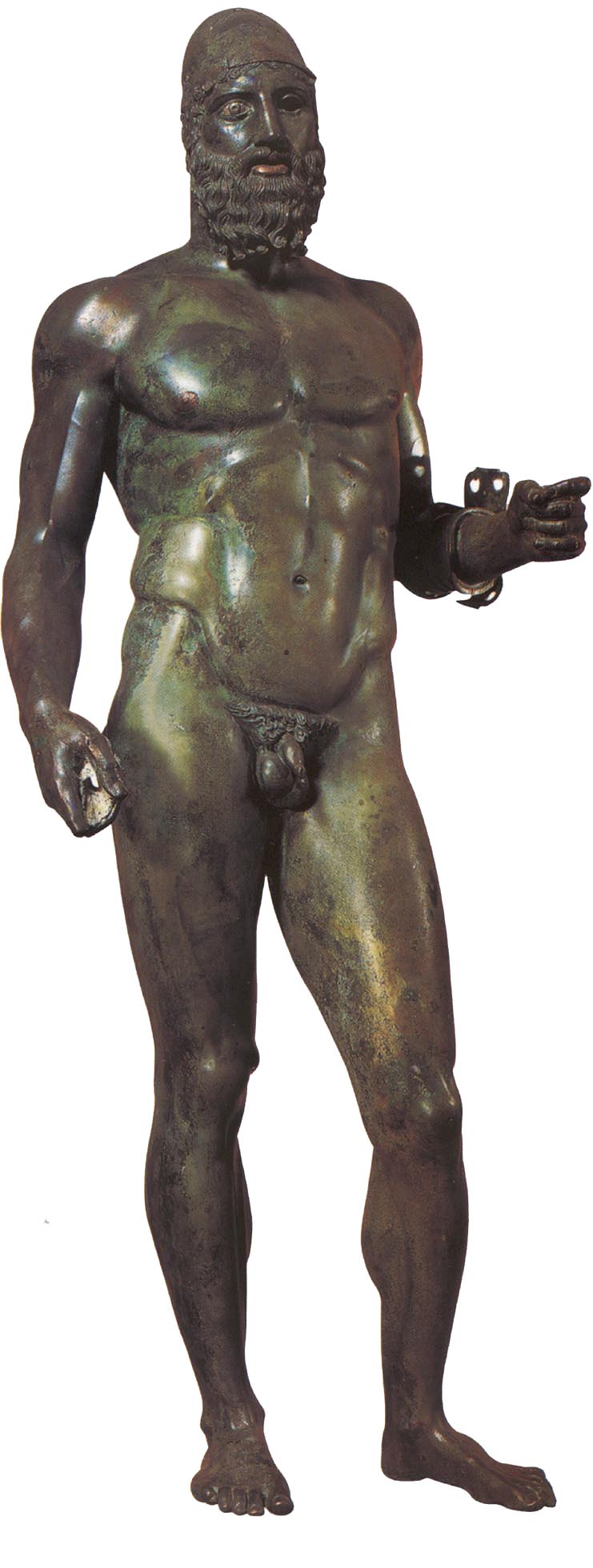
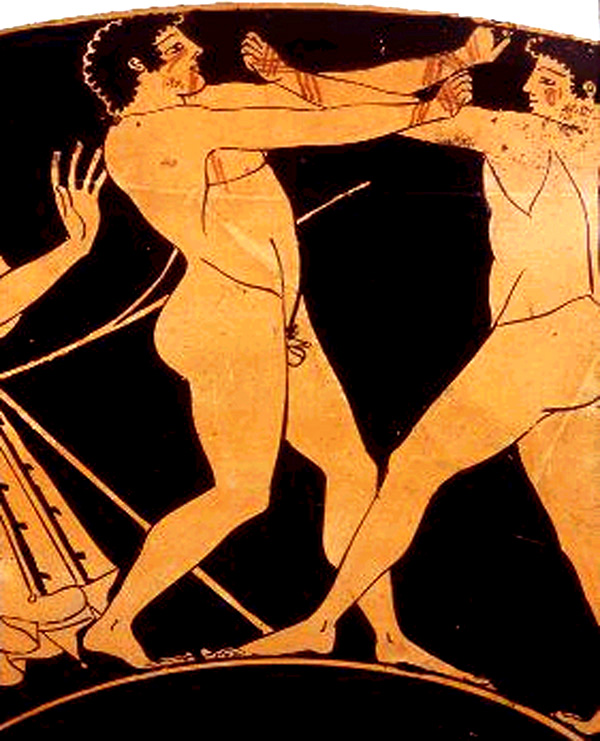
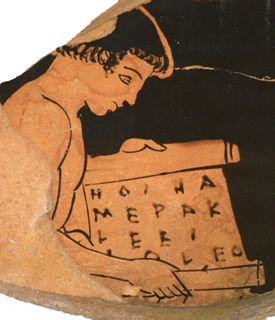
. . . he does not accept or admit into the guard-house [of his soul]
the words of truth when anyone tells him that some pleasures arise
from honorable and good desires, and others from those that are base
[1], and that we ought to practise and esteem the one and control and
subdue the others; but he shakes his head at all such admonitions and
avers that they are all alike and to be equally esteemed.
[These were among] my long-cherished beliefs
about sex and gayness: that sex in all of its forms was awesome, that
gay men's permissive attitudes toward it were much saner than the
straight community's, and that events like this one were a healthy
celebration of the most transgressive elements of gay life
[1] An obvious reference to the Gorgias. Cf. Gorg. 494 E
[1] An obvious reference to the Gorgias. Cf. Gorg. 494 E




whether the life of a catamite is
not terrible, shameful, and wretched?

Cultural Message
This sort of image, which models analist rape,
and misleadingly presents the bottom as erect,
is common on the web
Anything which reduces sexual pleasure is repugnant to me.

greed and hedonism

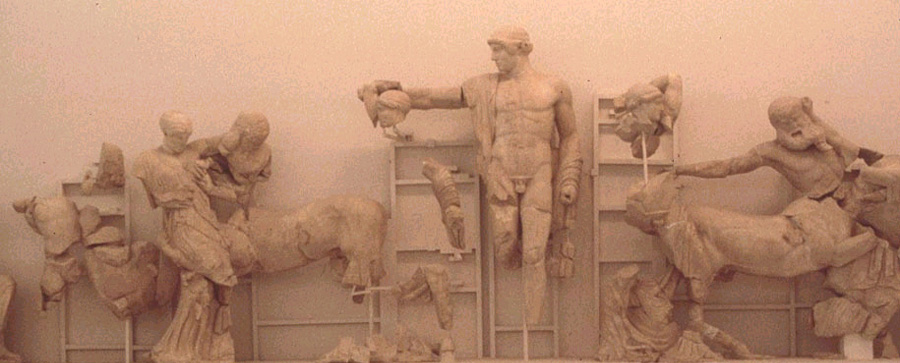
Apollo, God of Reason, stops the rape of the Lapith women by the Centaurs, who are drunk and thus vulnerable to their most base passions

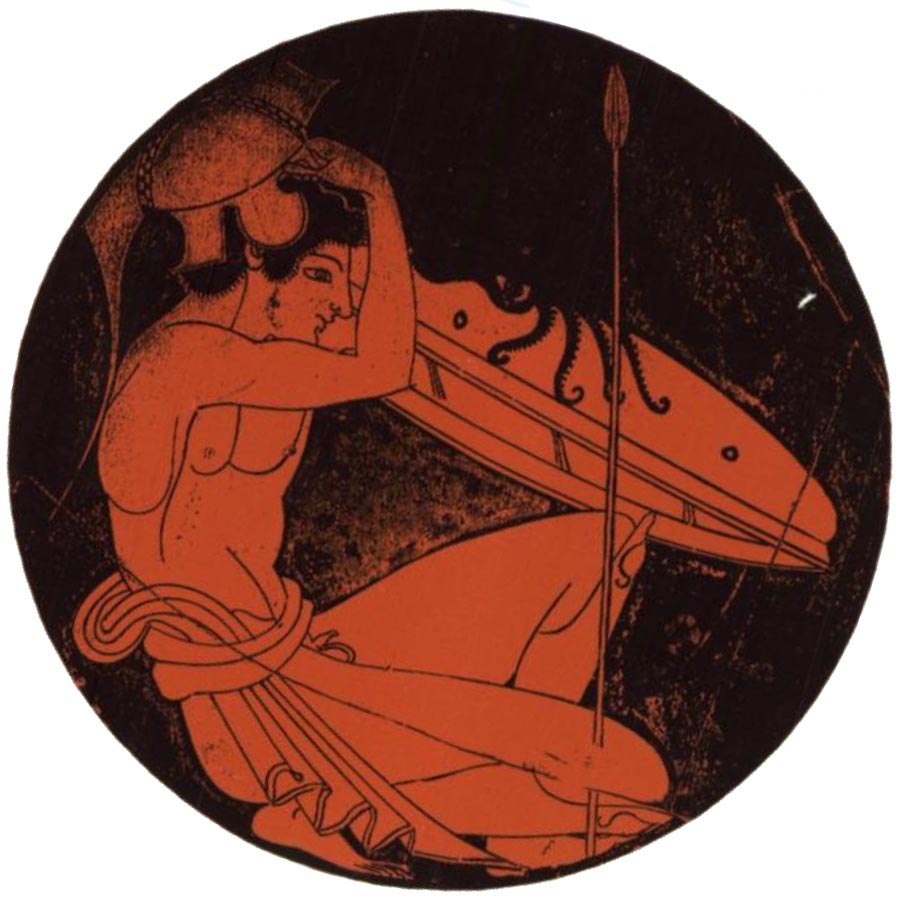

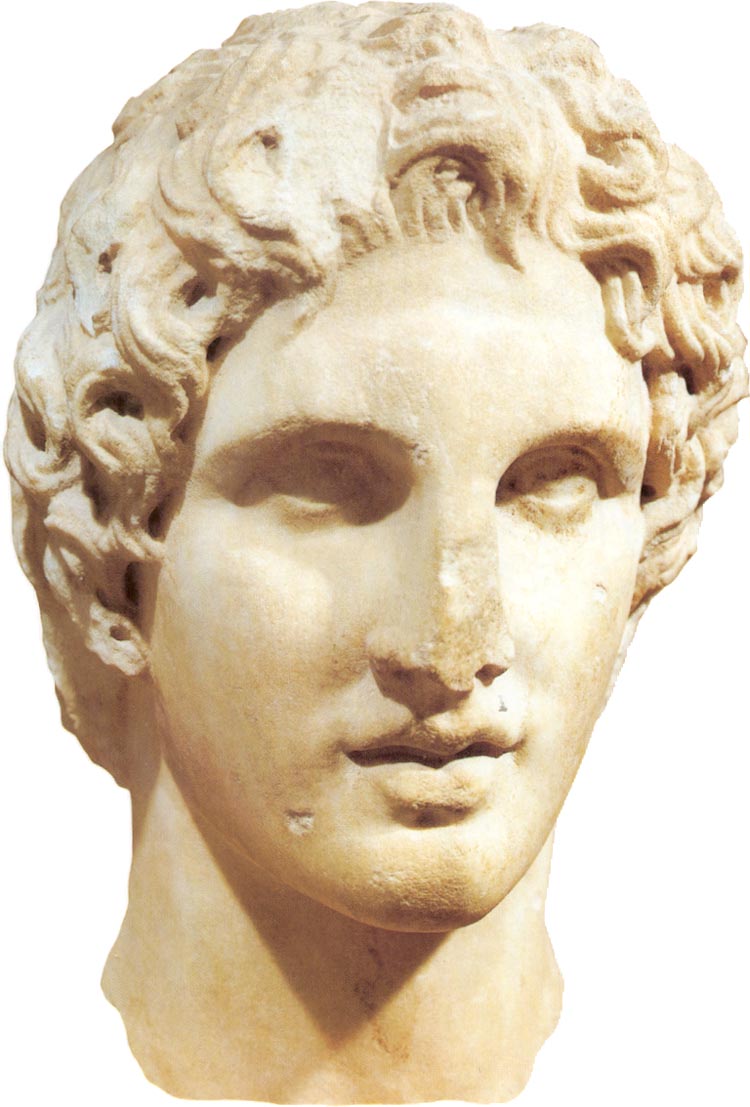
Being "romantic" with another guy? It just sounds so weird. I want to kick his ass.
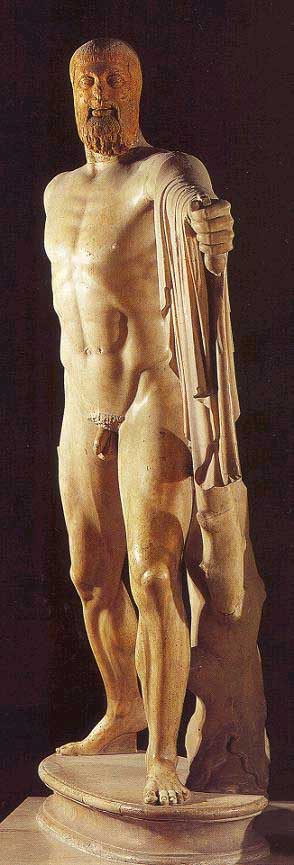

Athenian tyrannicides Aristogeiton and Harmodius
Constitutional government, civil liberties, free exchange of ideas, self-critique, private property, capitalism, and separation between religious and political/scientific thought.




Being "romantic" with another guy? It just sounds so weird. I want to fuck his ass.

no romance




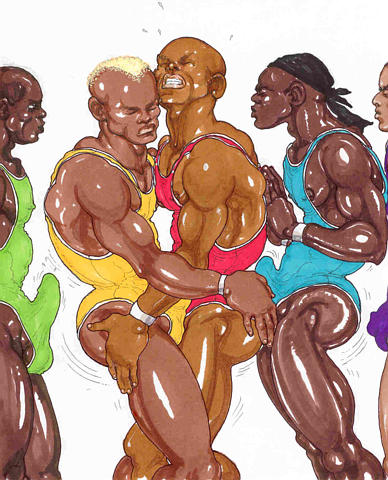

First night, those blows exchanged, and our brief rage,
The pledge of long affection...



If prevention programs are implemented when HIV epidemics are at or
near their "natural" peaks, the subsequent decrease in prevalence
might be incorrectly attributed to prevention programs. Yet most
of the observed decrease might more likely be due to a saturation
effect -- infection of most of the population with the highest risk
behaviors. Thus, only a small proportion of the decrease in HIV
prevalence might be due to prevention measures. The following
section illustrates these problems in attributing reductions in
observed HIV prevalence trends to prevention programs.
HIV prevalence rose from 1 percent in 1980 to 25 percent in 1982 to
65 percent in 1984.
. . . he does not accept or admit into the guard-house [of his soul]
the words of truth when anyone tells him that some pleasures arise
from honorable and good desires, and others from those that are base
[1], and that we ought to practise and esteem the one and control and
subdue the others; but he shakes his head at all such admonitions and
avers that they are all alike and to be equally esteemed.
a crowd of buff and wealthy men, who can afford party drugs and expensive tickets (getting into the Black Party costs $140) and get away with not sleeping for entire weekends at a time.
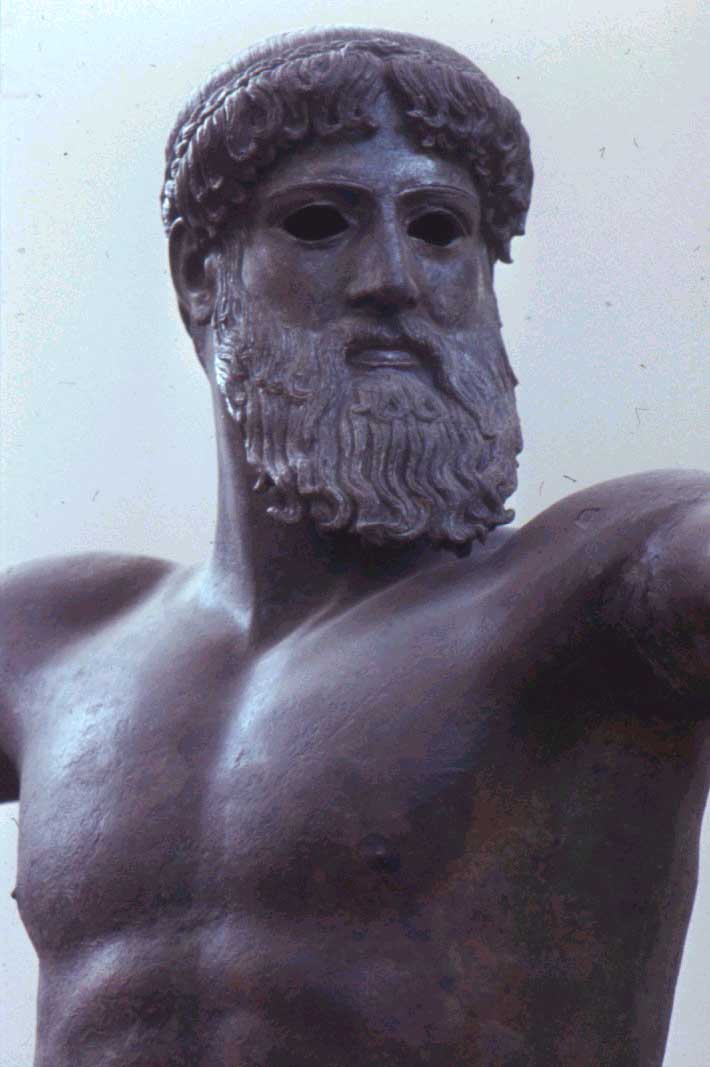
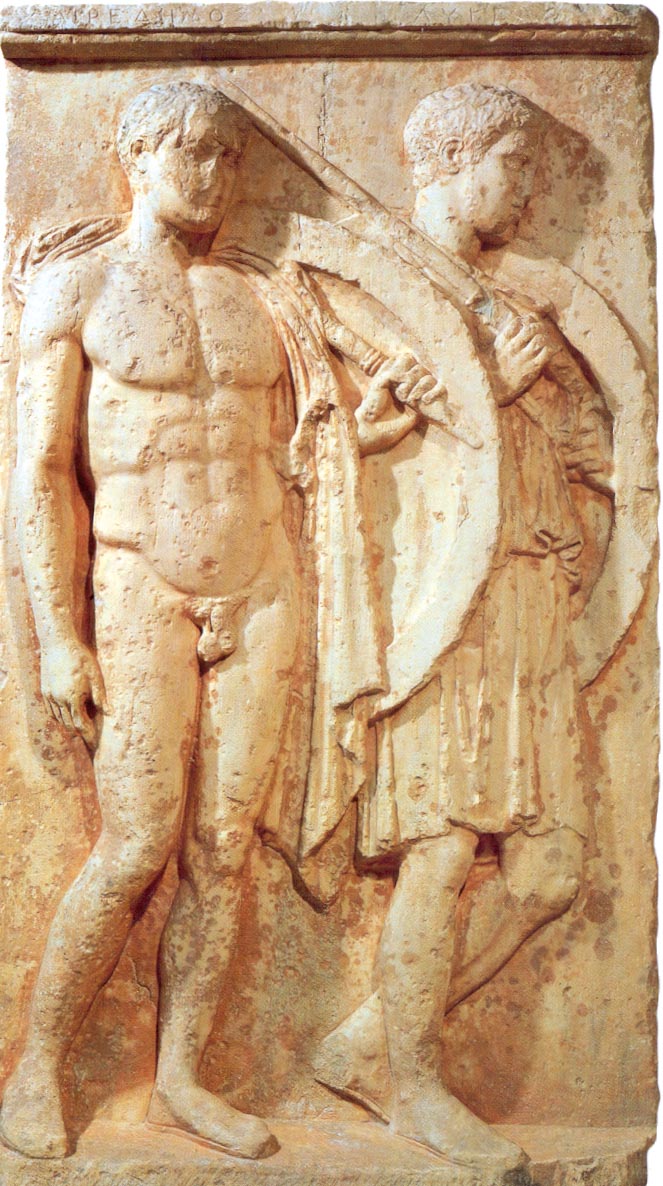
I yearn for a "great Man-Comrade" who should be "so much one with me that we could never misunderstand," adding: "He should love the flesh, as he should the spirit."
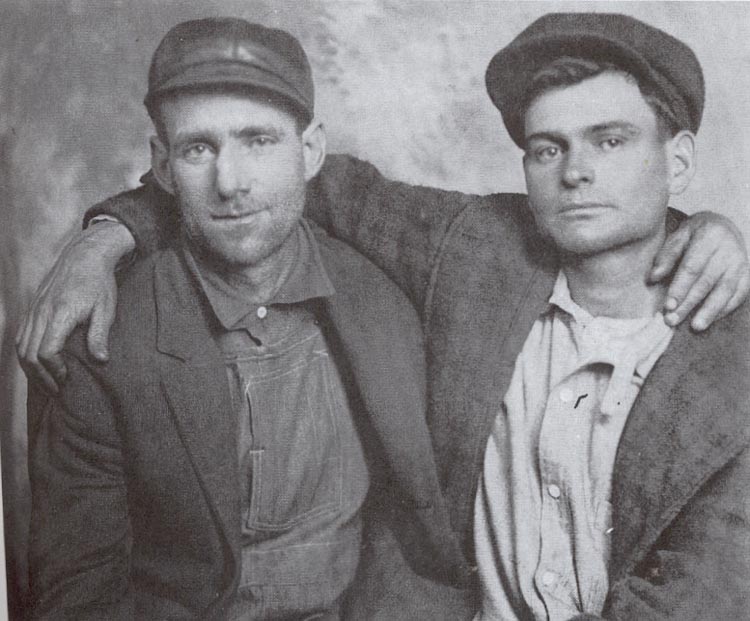
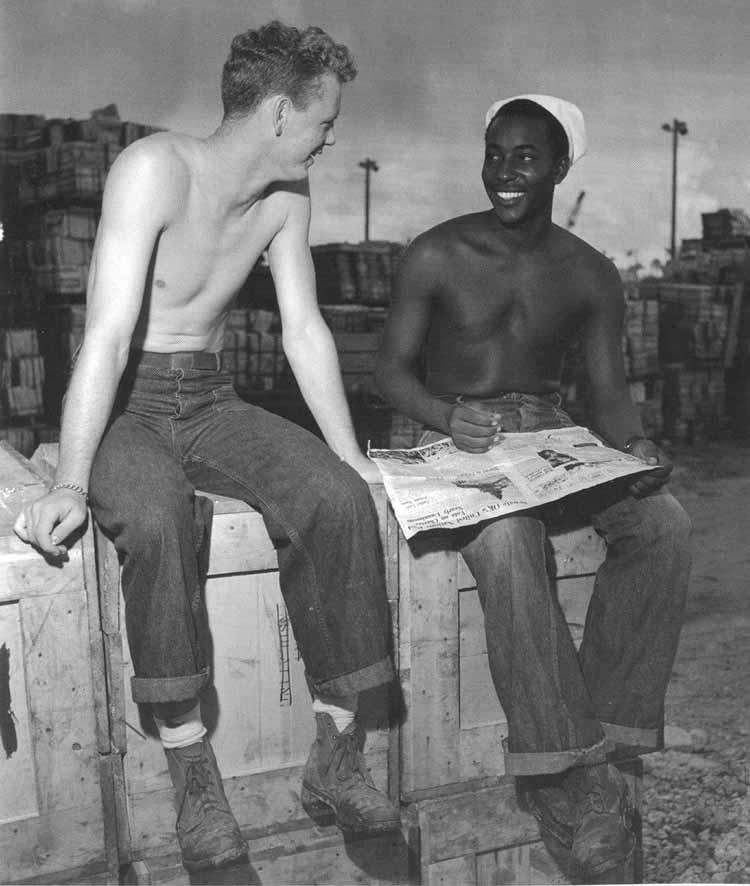
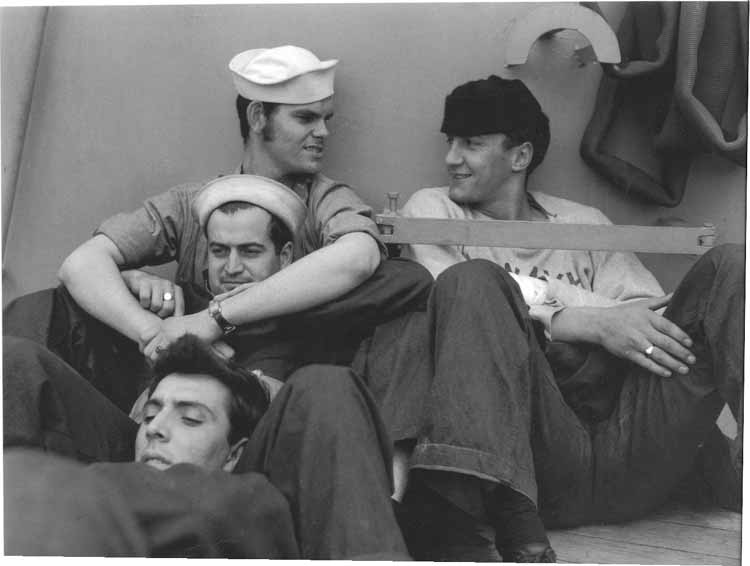
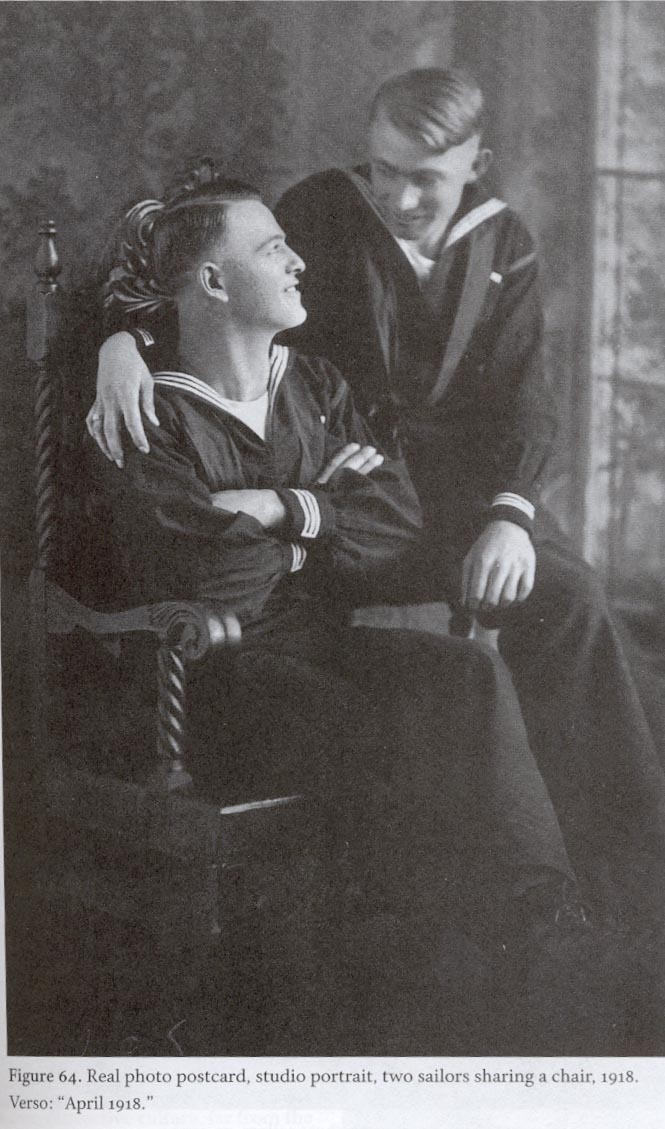
Photo from John Ibson's Picturing Men
Ck out the Heroes Reading List to learn more about Prof Ibson's very important book.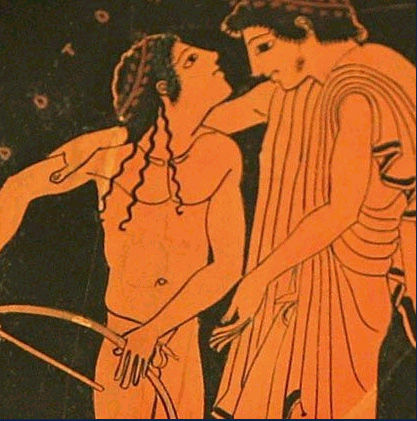
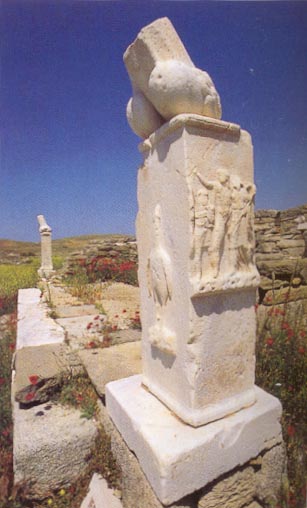

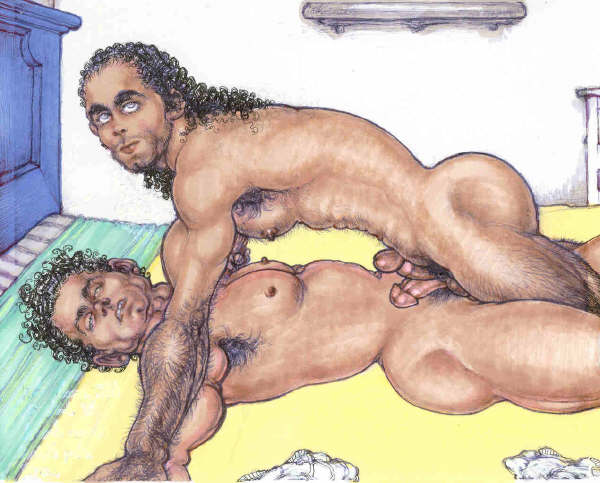
From the same root [ARES] comes areté [excellence] ...the first notion of goodness being that of manhood, bravery in war; cf. Lat. virtus.
Plutarch adduces with evident disapproval cases of husbands who allowed their wives to be unfaithful to gain some advantage, and then notes, "By contrast, of all the many [male-male] lovers there were and have been, do you know of a single one who surrendered his beloved, even to gain favor from Zeus? I do not." (Erotikos 760B).
Thou dost rouse lust by many a trick, when there is no need, using men as women

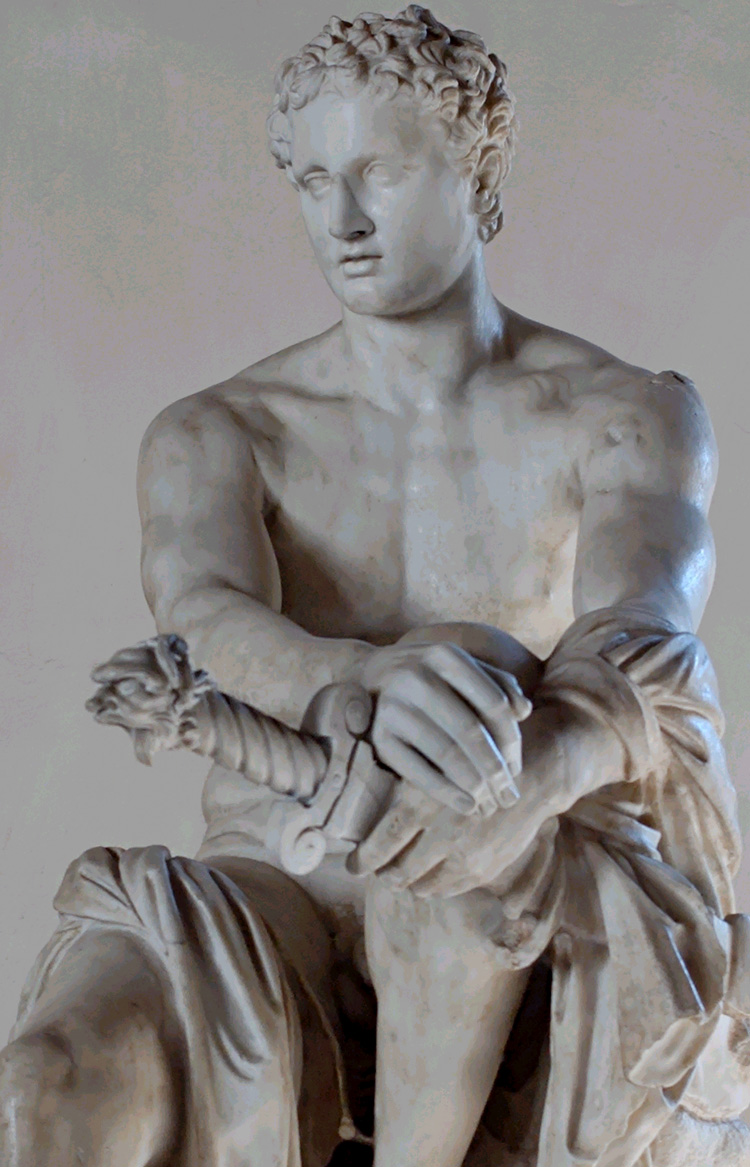

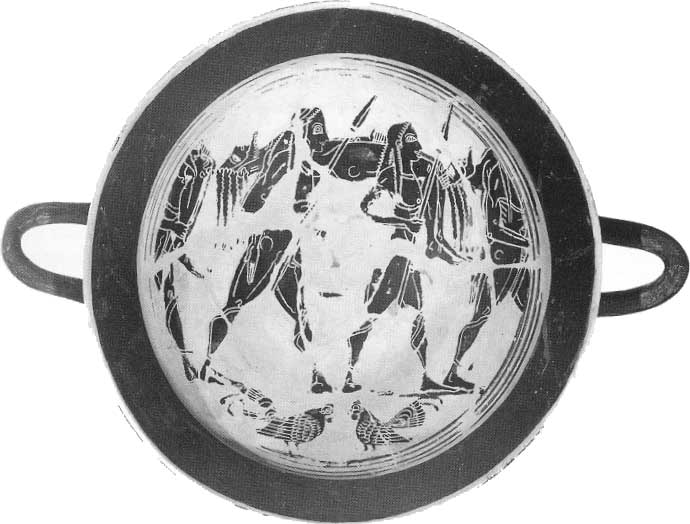



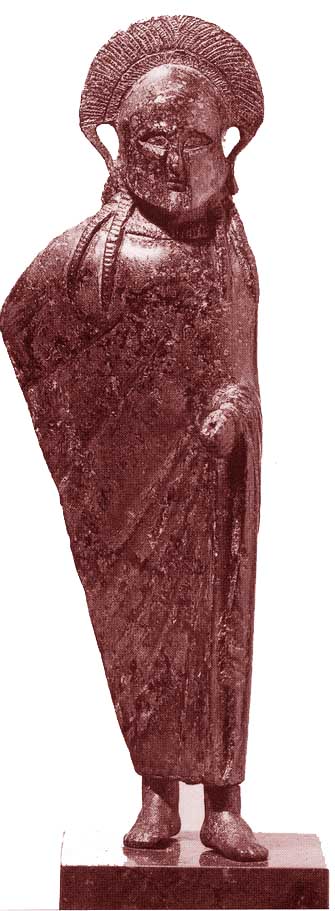
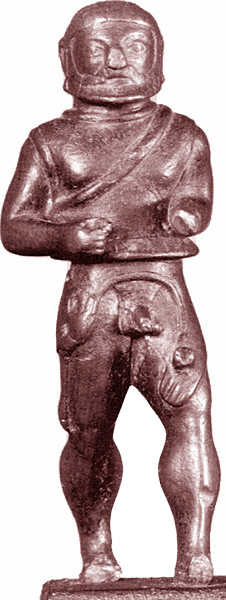
For sexually active MSM, the most effective ways to prevent HIV and other STIs are to avoid anal sex [sic], or for MSM who do have anal sex [sic], to always use condoms. Serosorting does not protect against other STIs, like hepatitis B virus (HBV), hepatitis C virus, syphilis, and herpes.

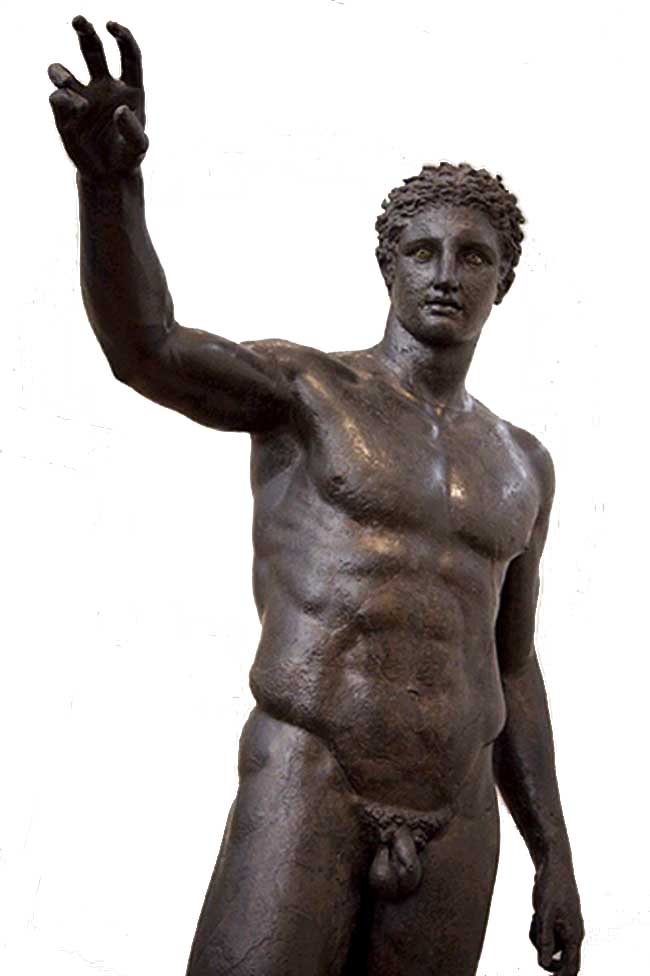
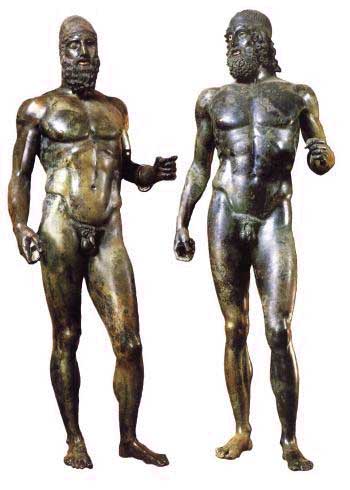
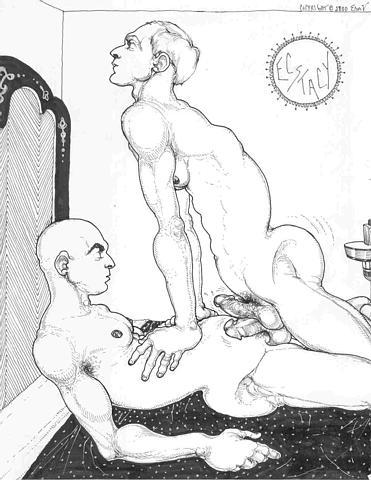
Philosophy alone can array young men in the manly and truly perfect adornment that comes from reason.
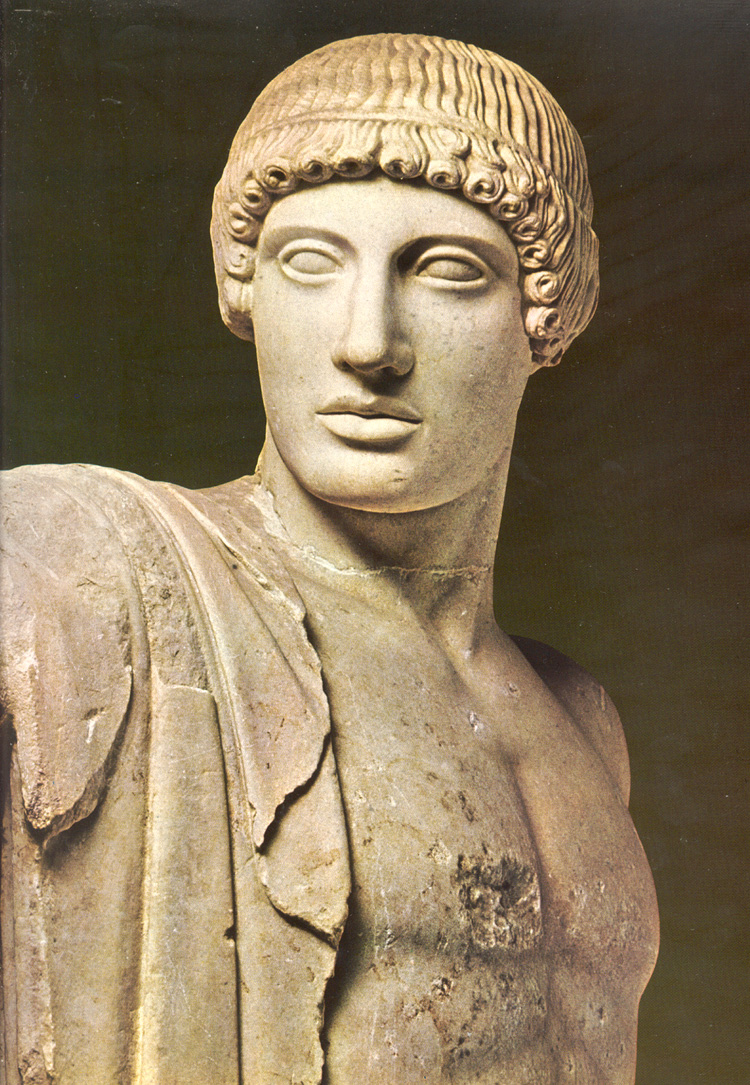






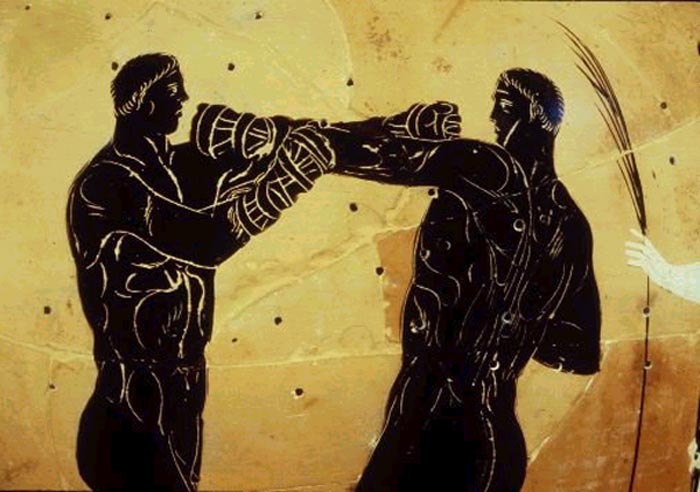

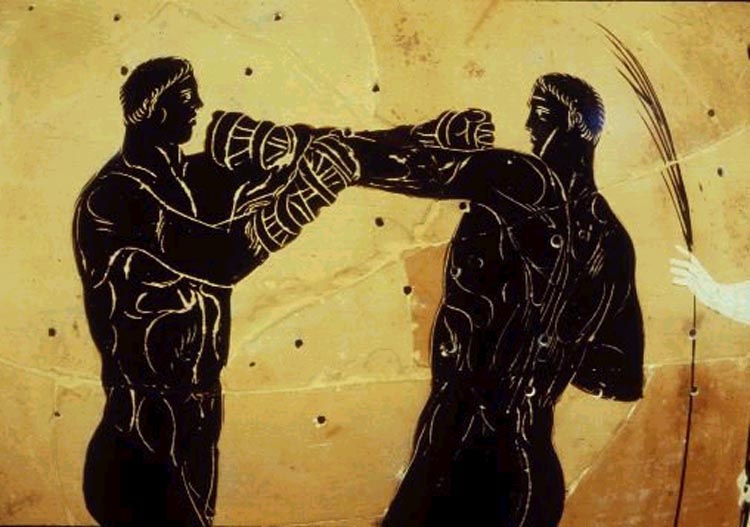



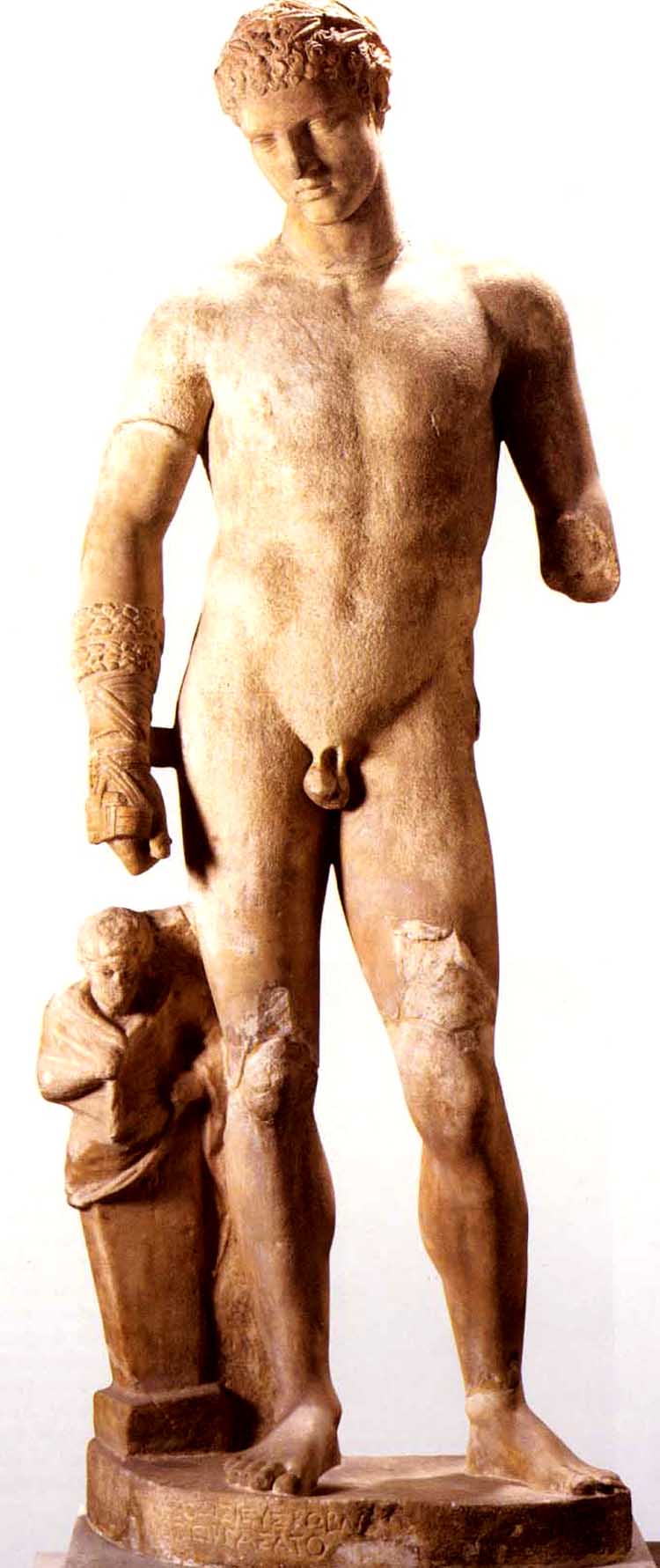







who reject anal penetration, promiscuity, and effeminacy
among men who have sex with men







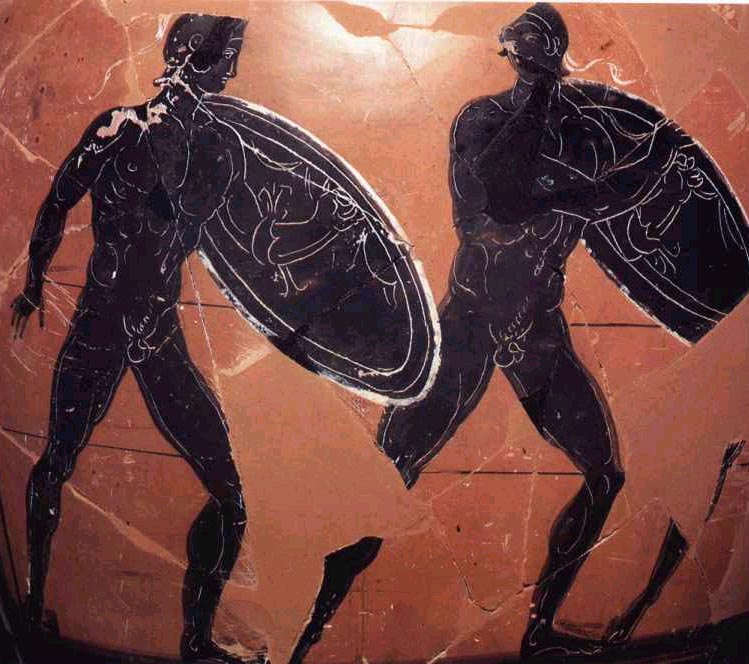
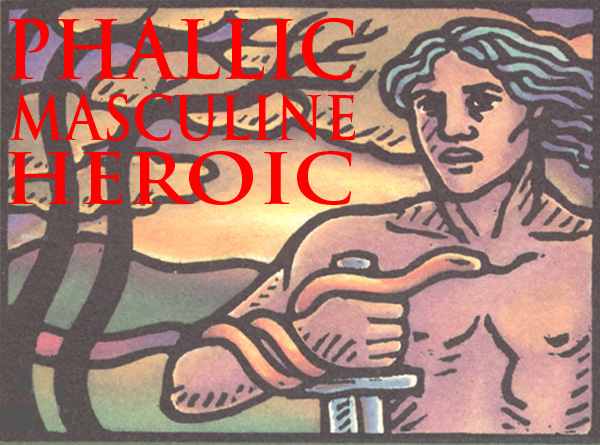






| Heroes Site Guide | Toward a New Concept of M2M | What Sex Is | In Search of an Heroic Friend | Masculinity and Spirit |
| Jocks and Cocks |
Gilgamesh | The Greeks | Hoplites! | The Warrior Bond | Nude Combat | Phallic, Masculine, Heroic | Reading |
| Heroic Homosex Home | Cockrub Warriors Home | Heroes Home | Story of Bill and Brett Home | Frot Club Home |
| Definitions | FAQs | Join Us | Contact Us | Tell Your Story |













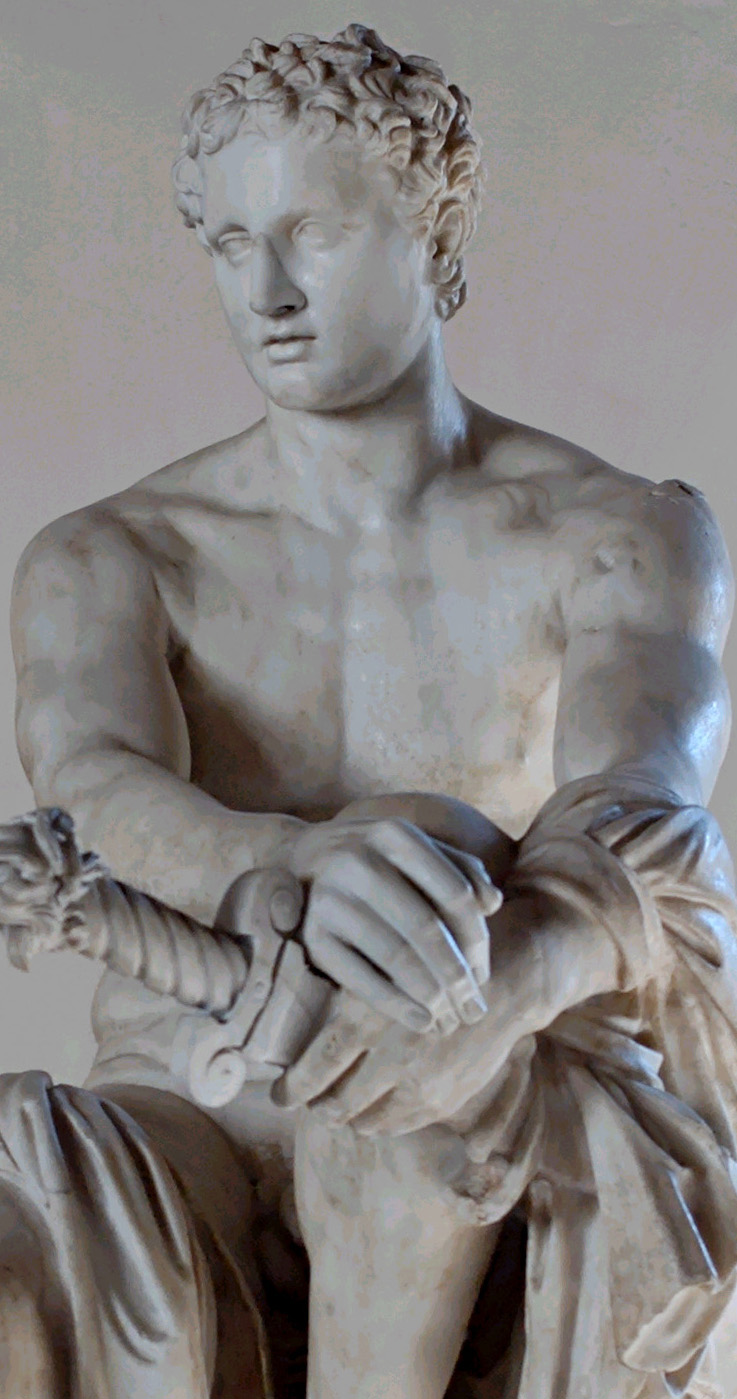

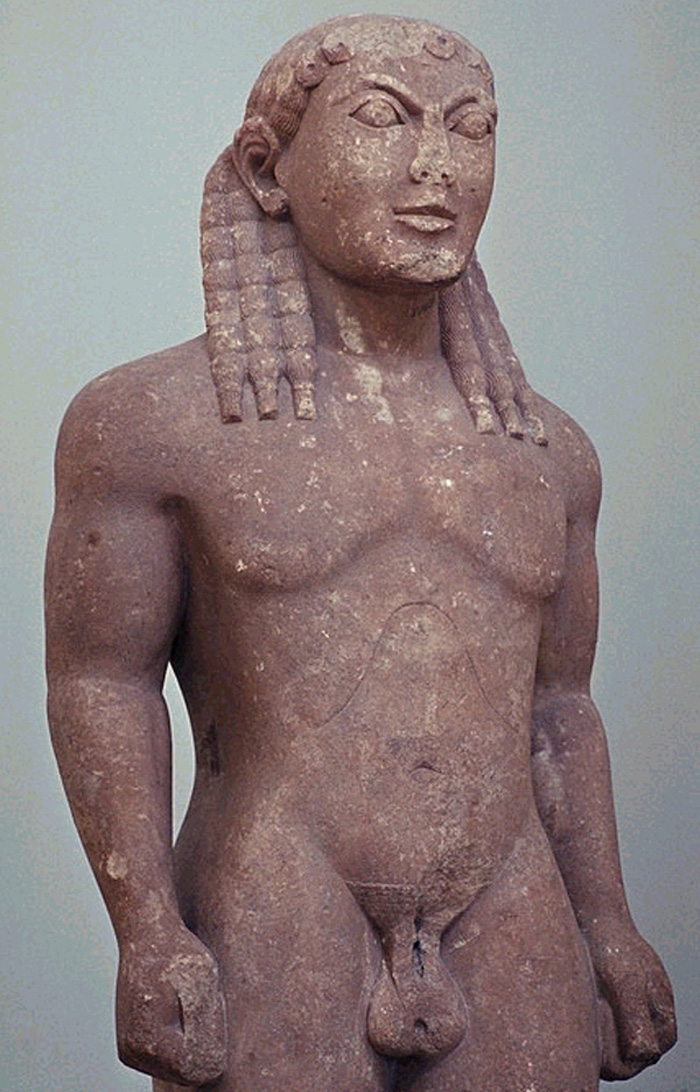

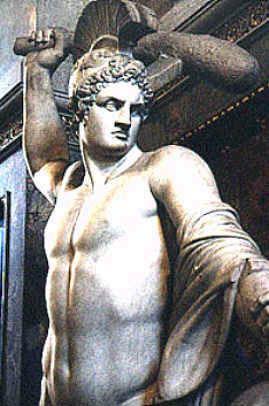


































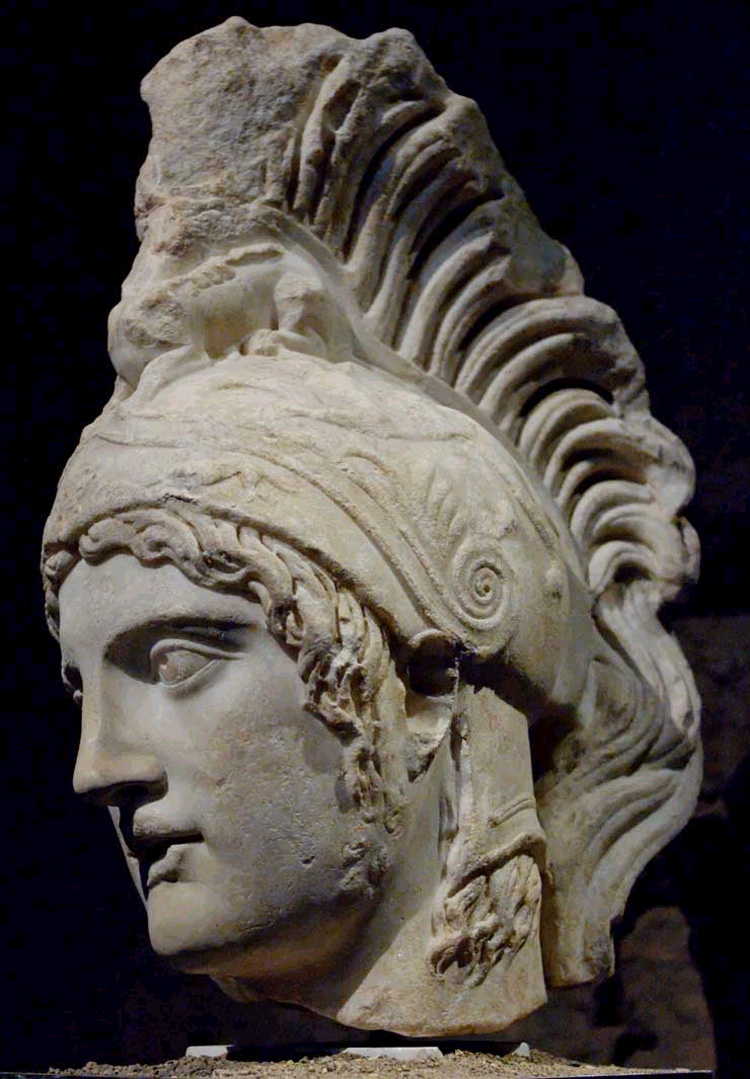


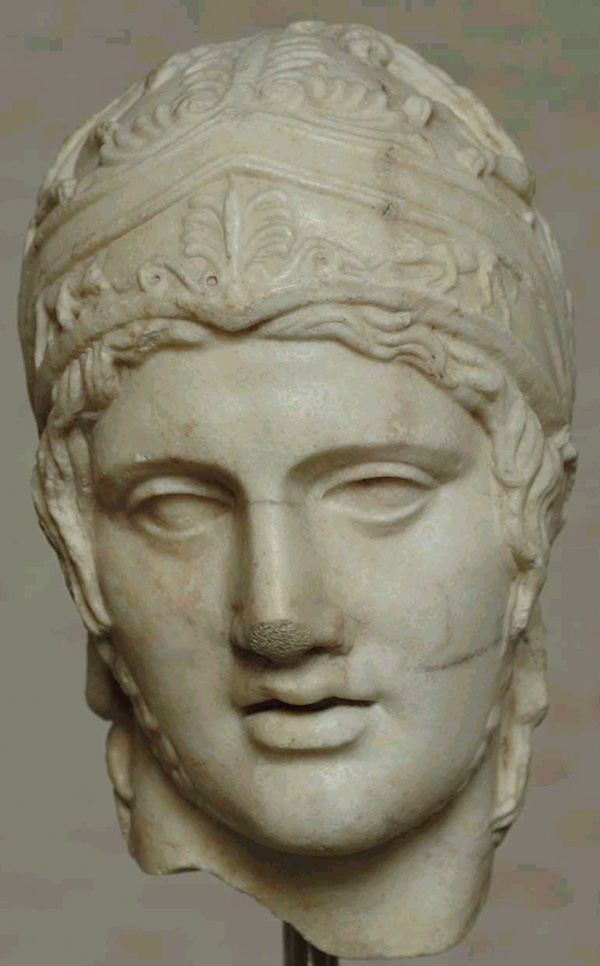

















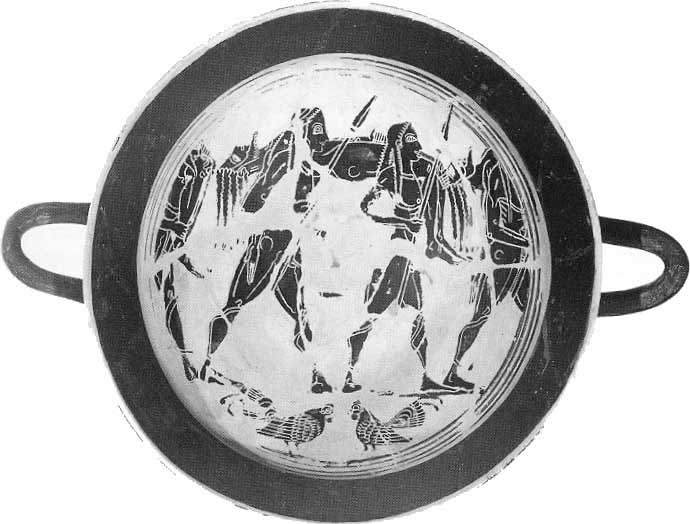



































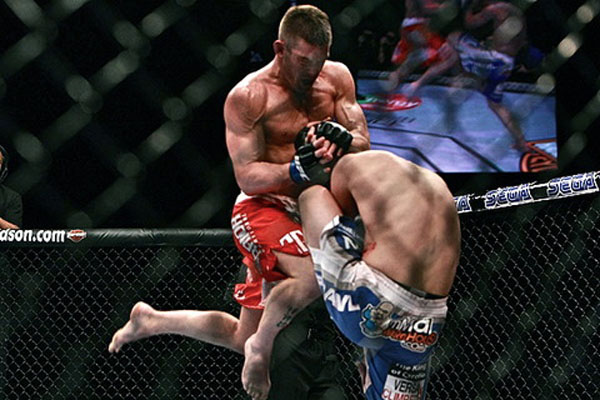

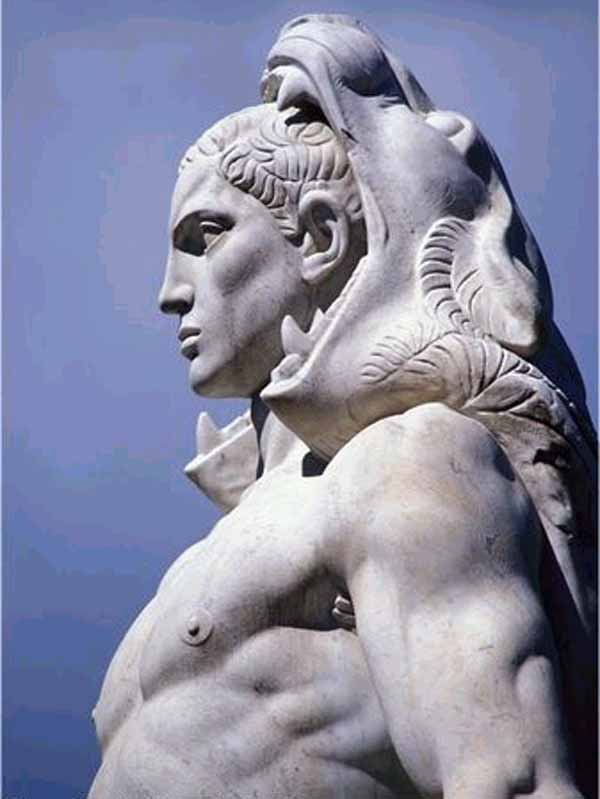
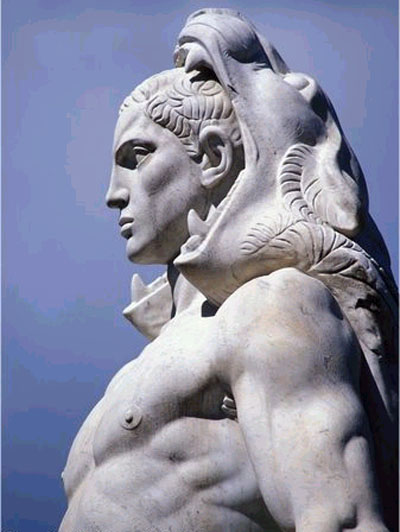
If an army went into battle without proper training and organisation they would lose. Historic example, in the English Civil War (1642 to 1646) the army of King Charles 1st was better organised and won most of the first battles; however Oliver Cromwell trained and organised the men fighting on Parliament's side into the New Model Army, and they won! If they had not been so organised the King would have carried on as the dictator he had been. Maybe eventually we would have got the freedoms that we enjoy now but it would have come more slowly and the monarch would have given them very grudgingly; so organisation is as you say vital to winning.




